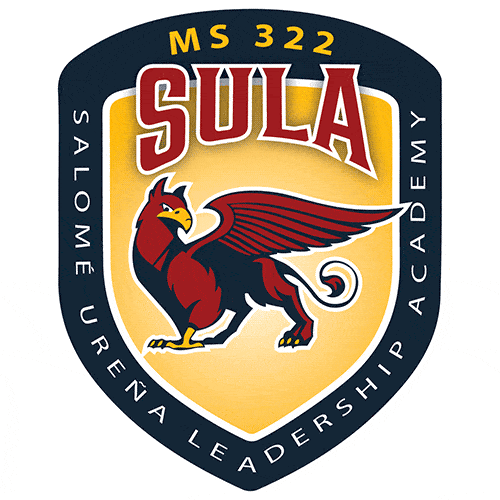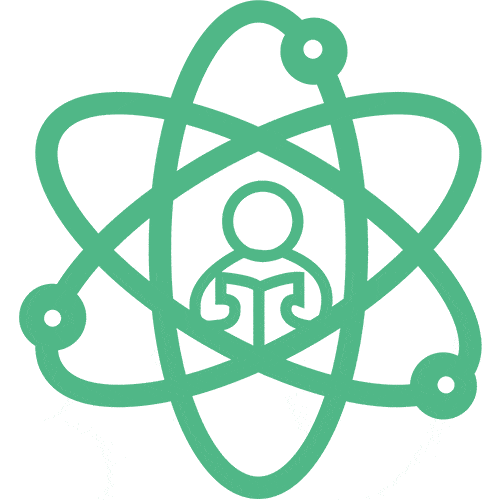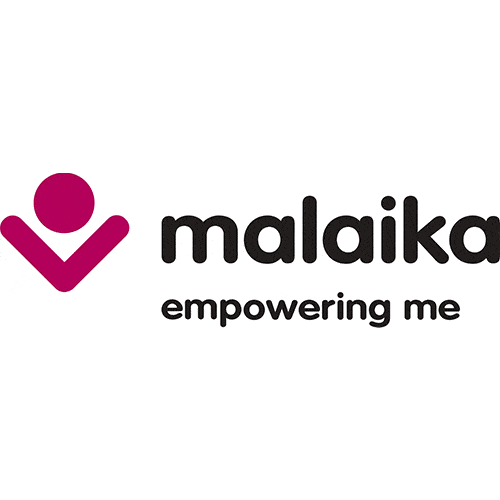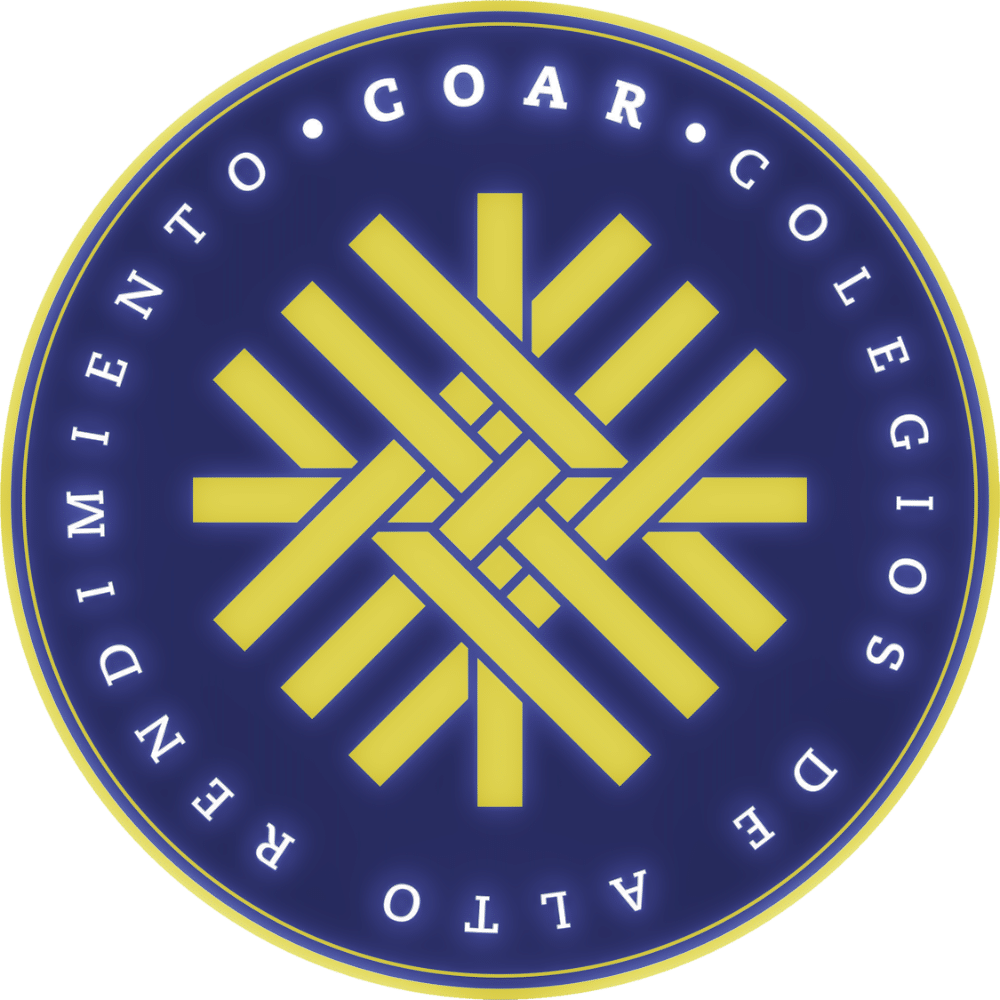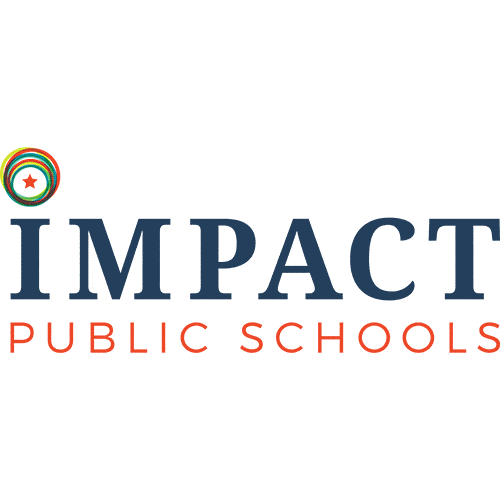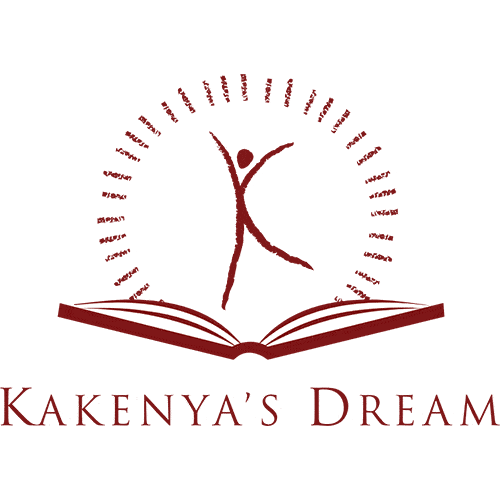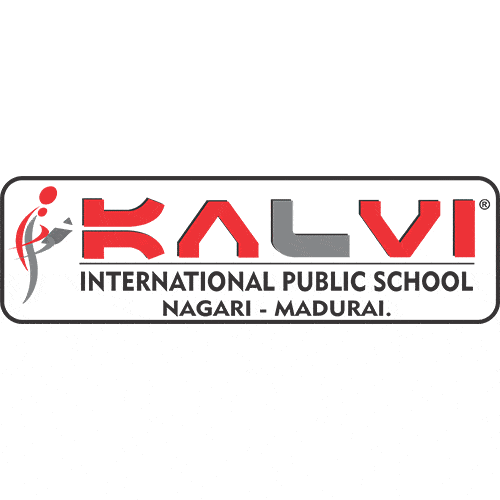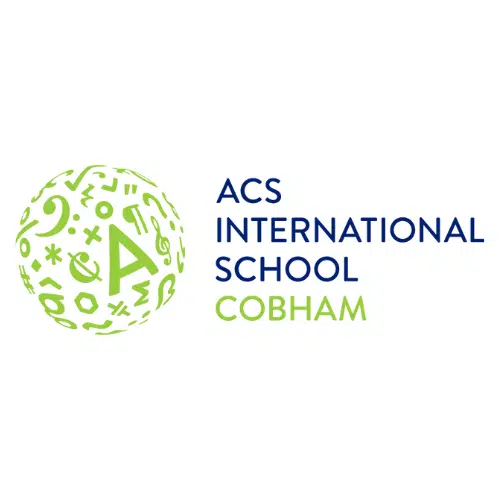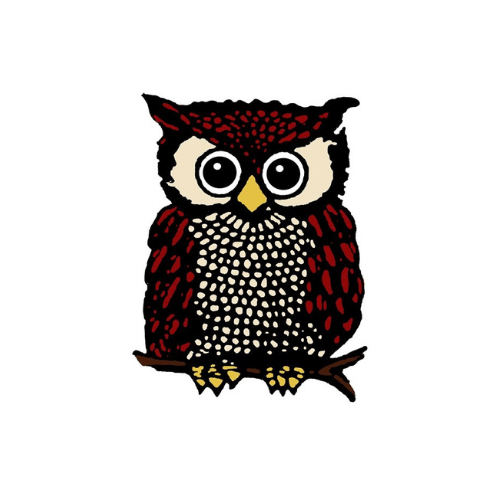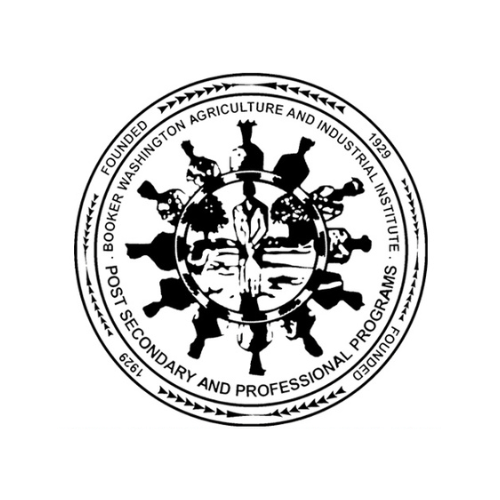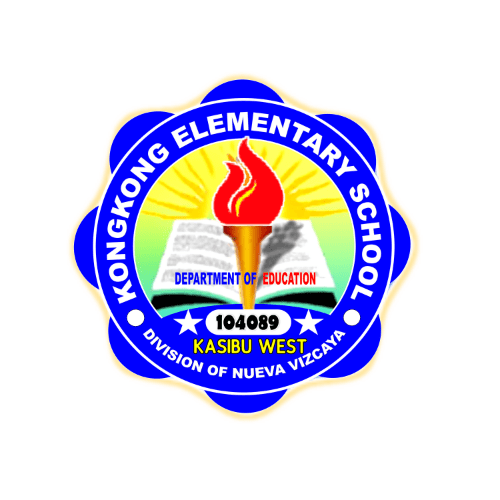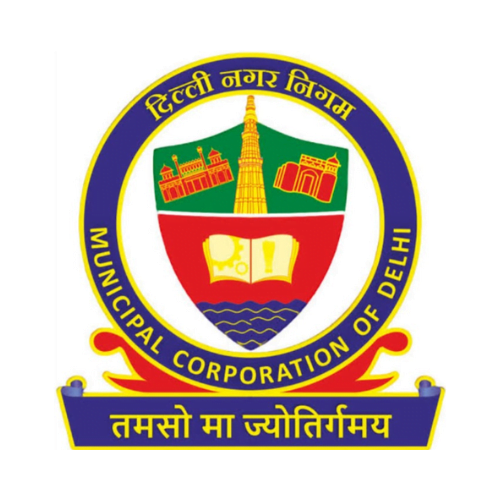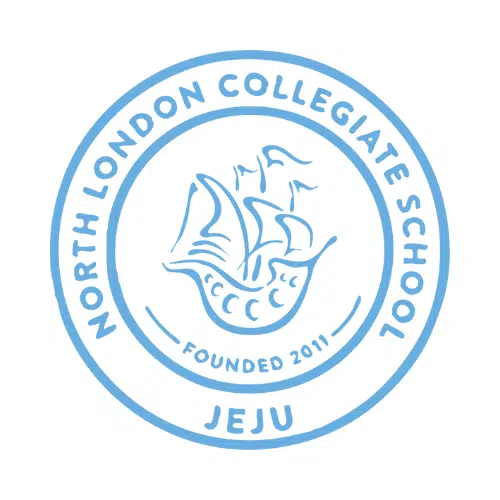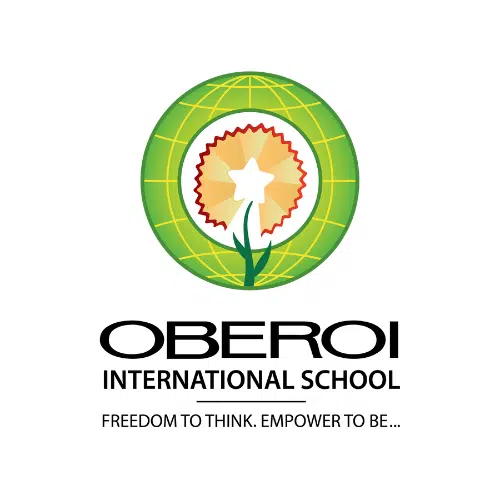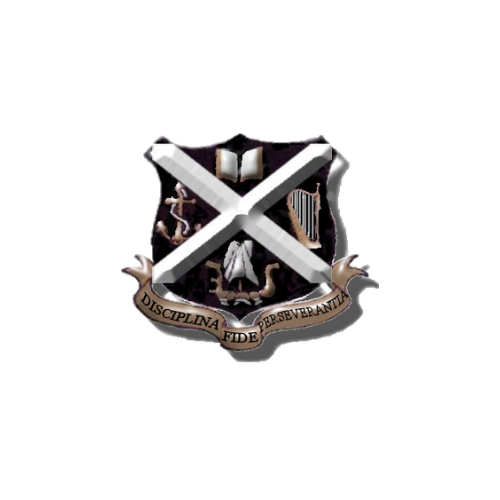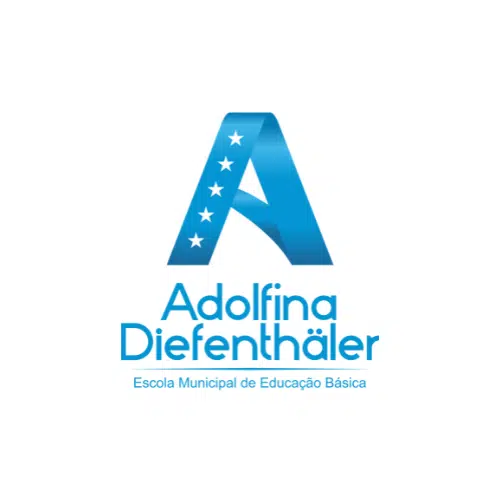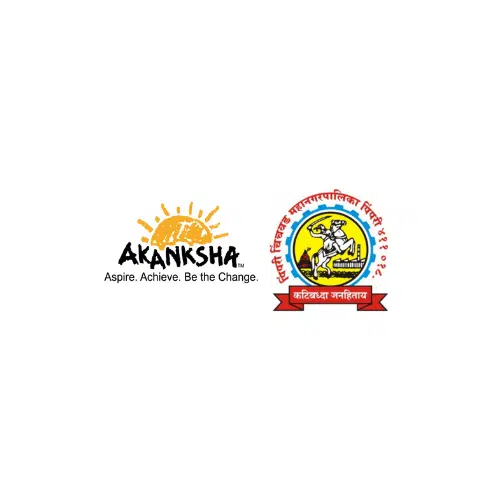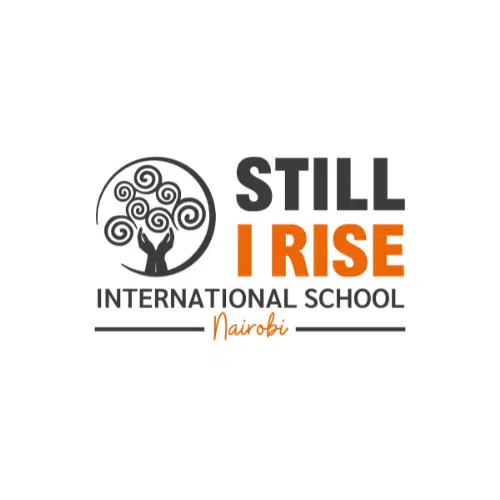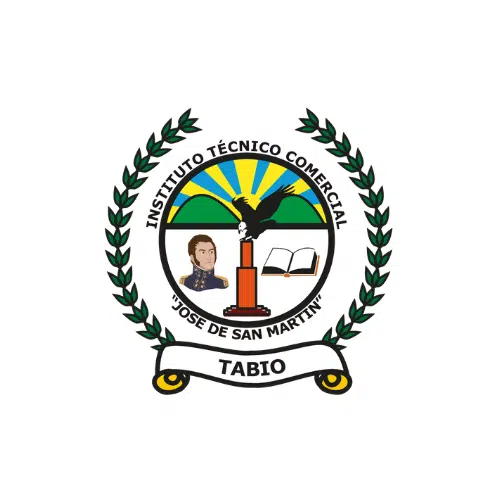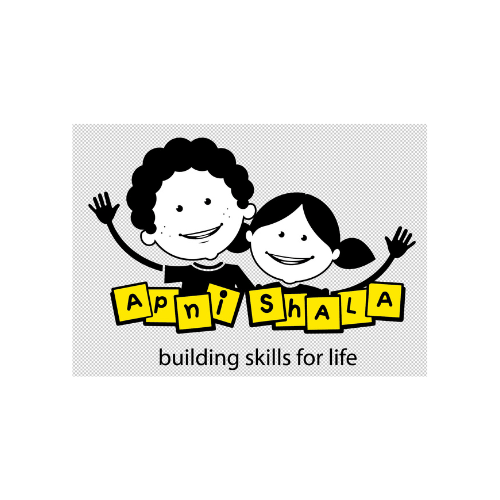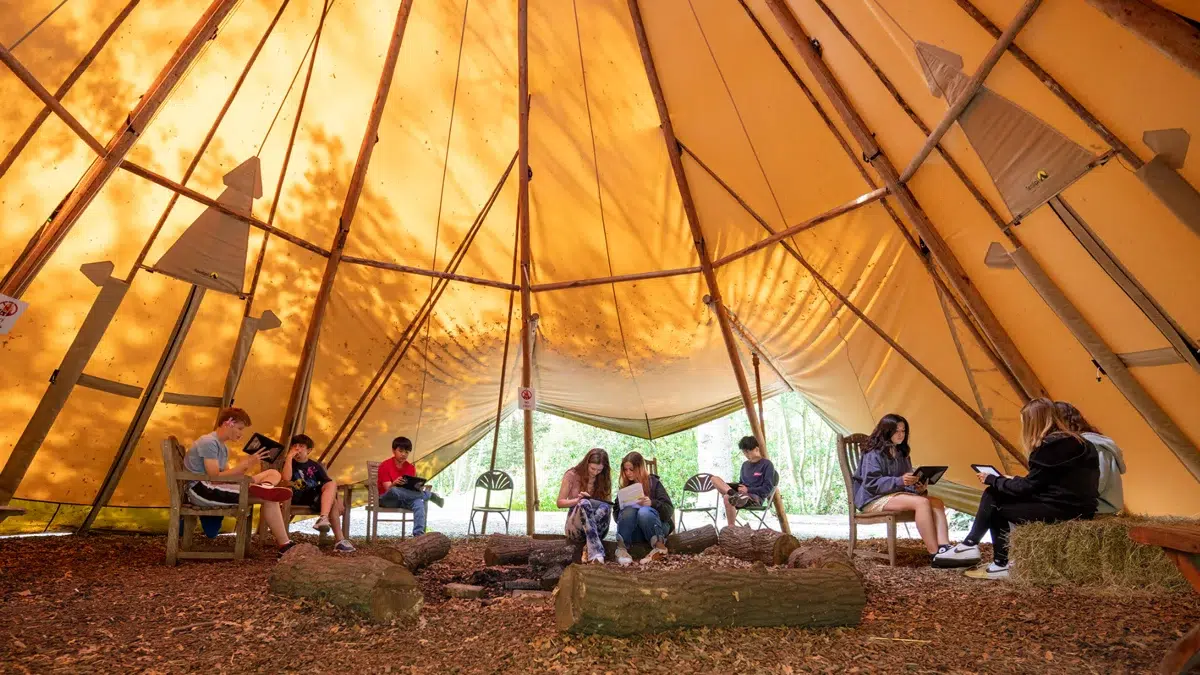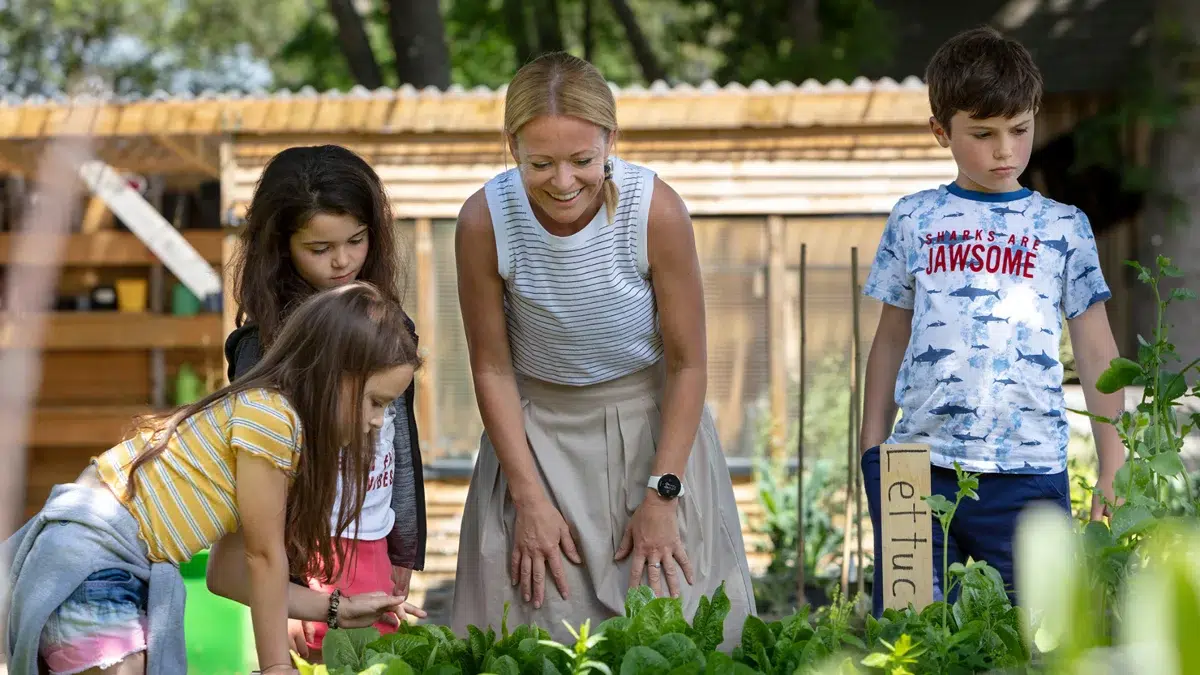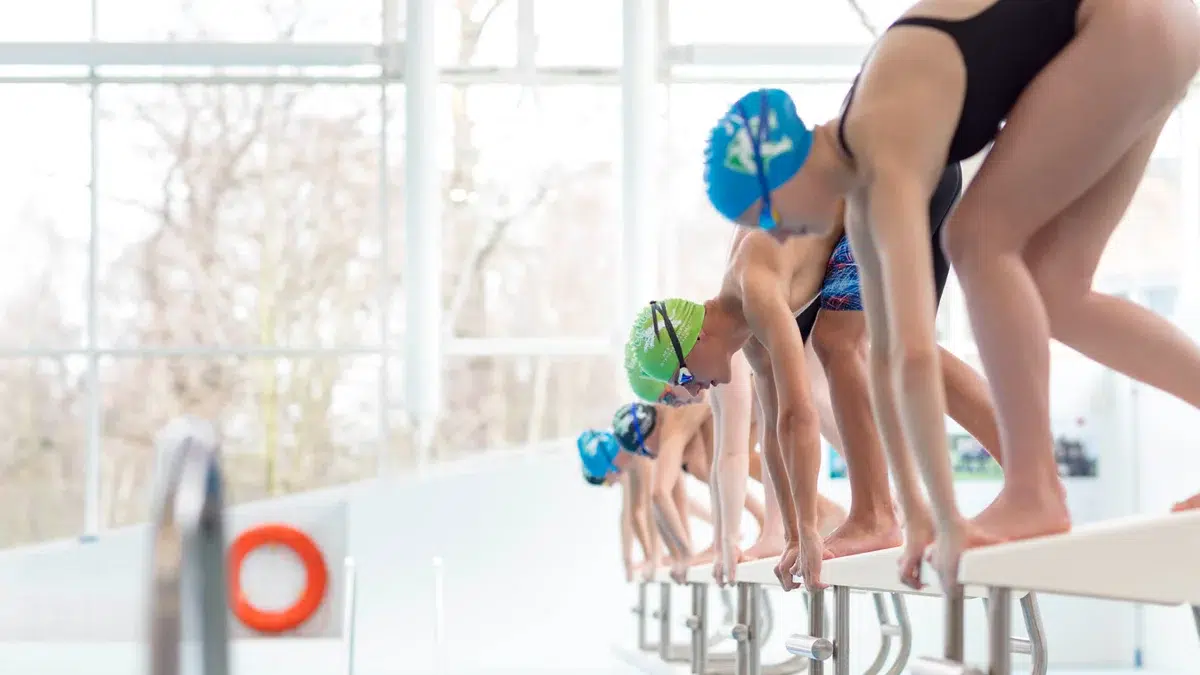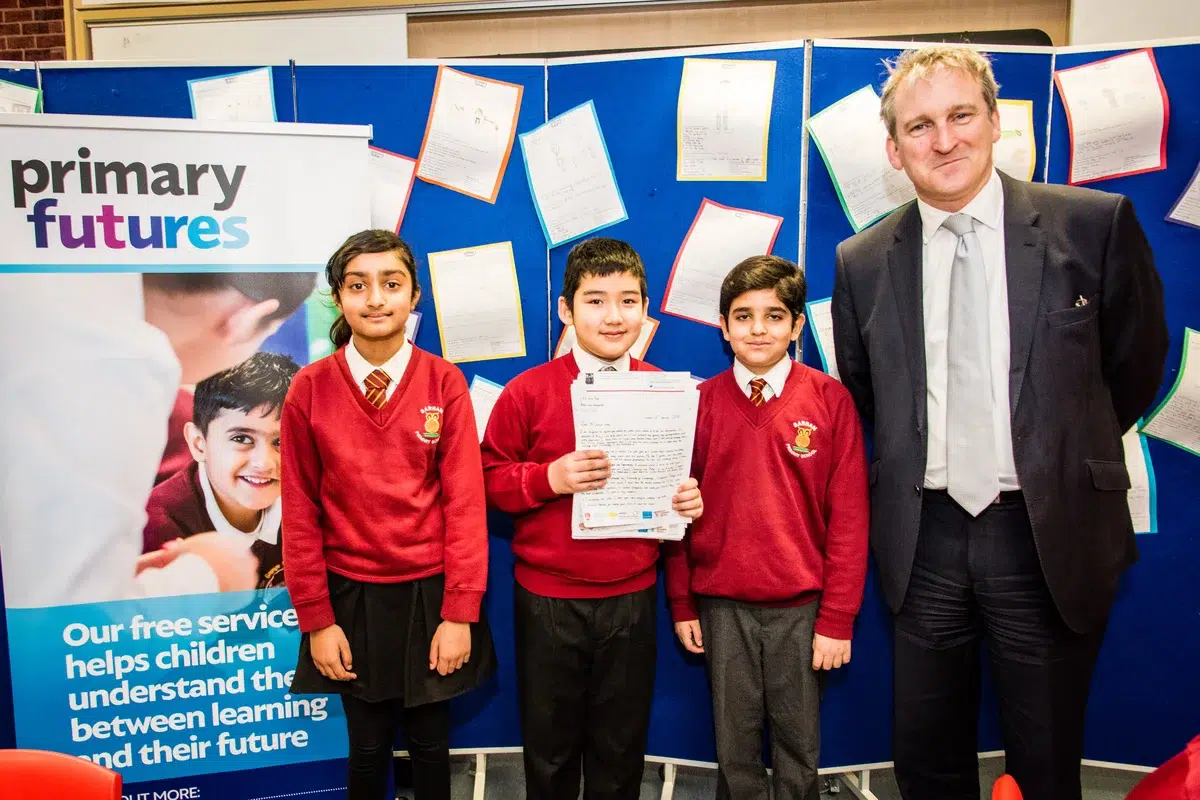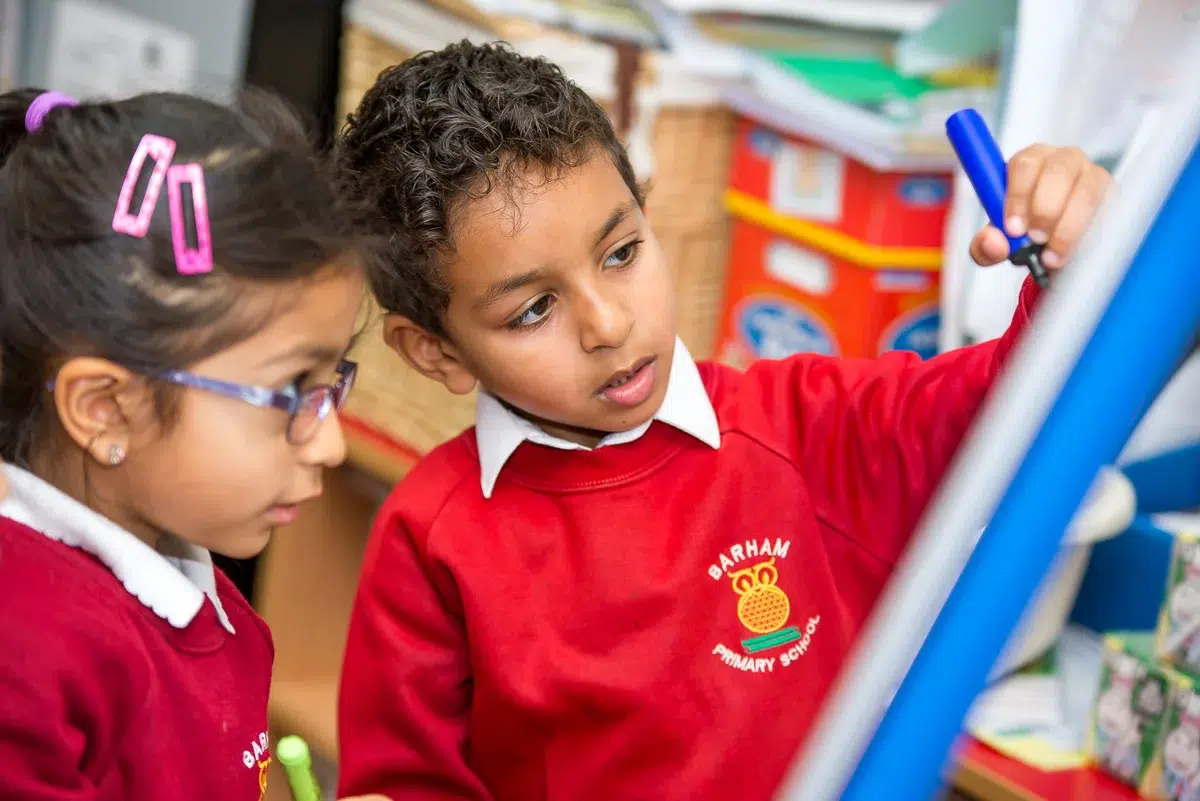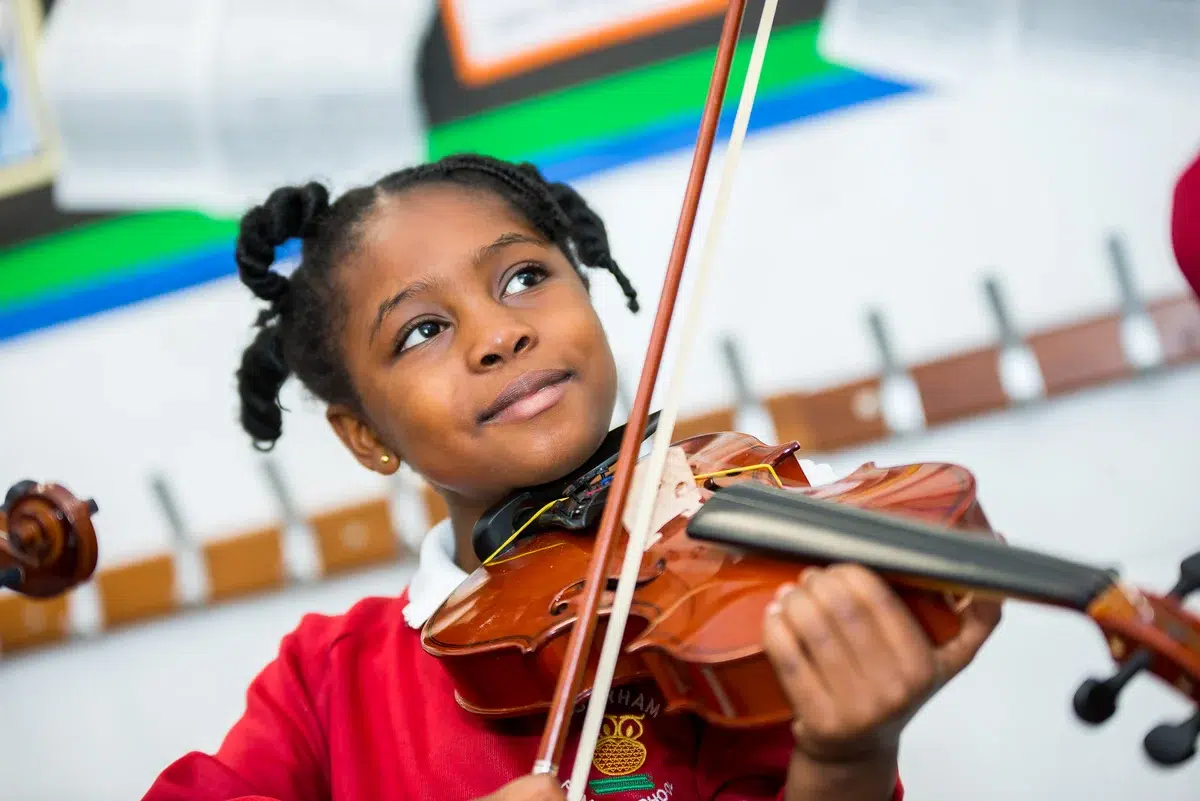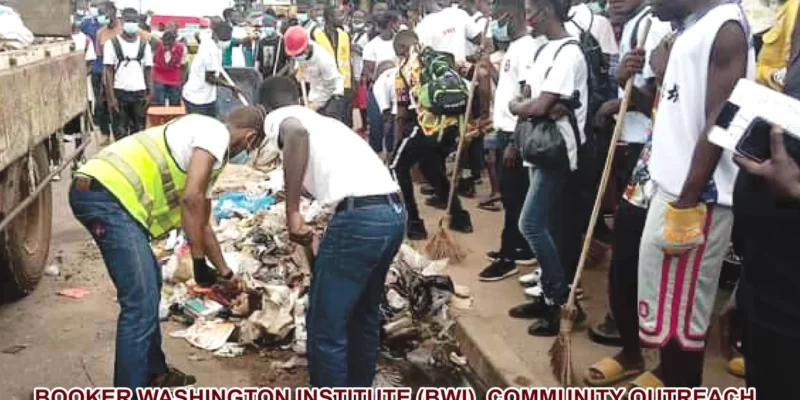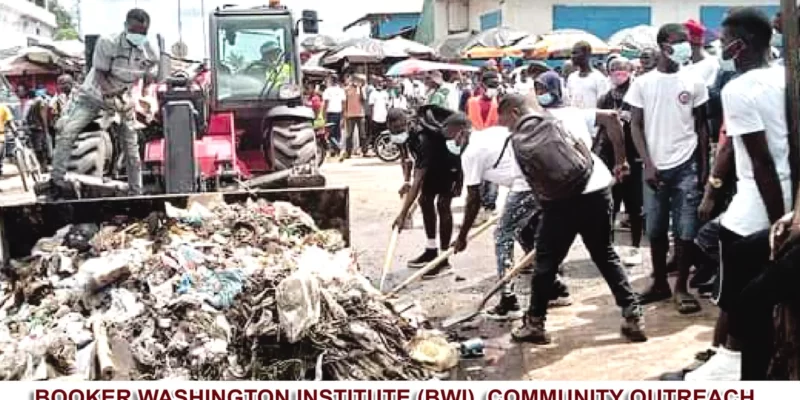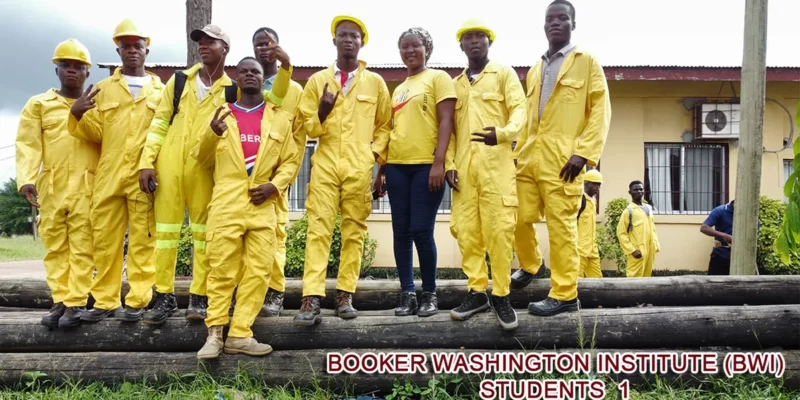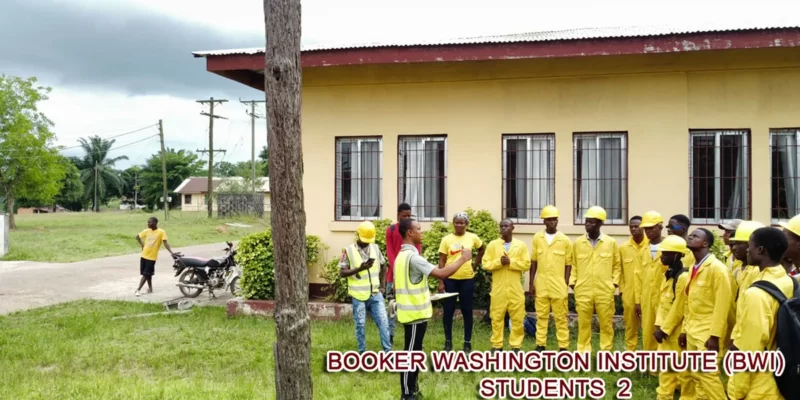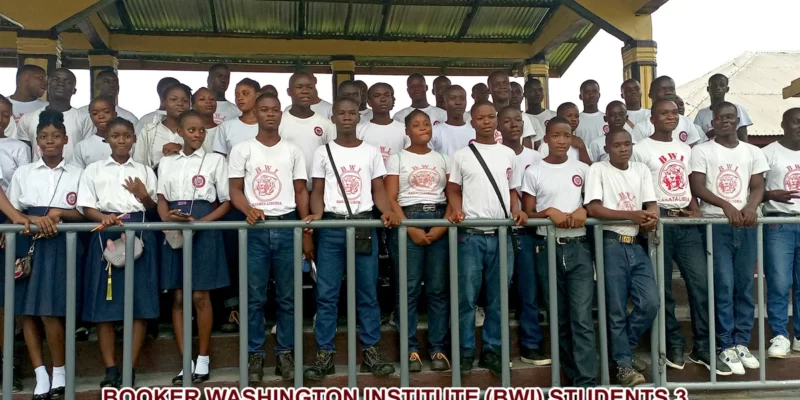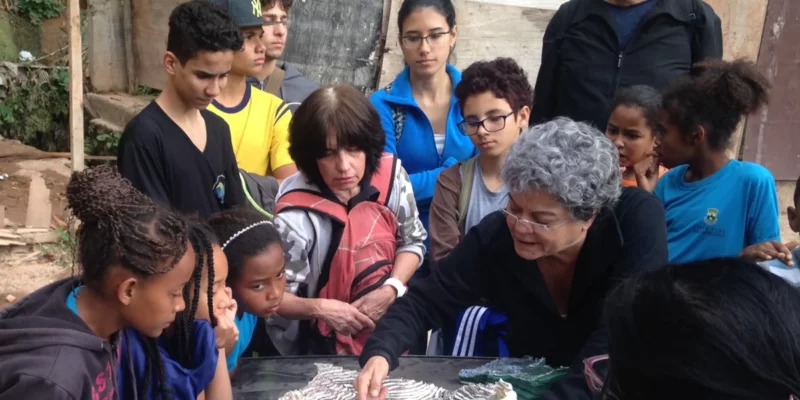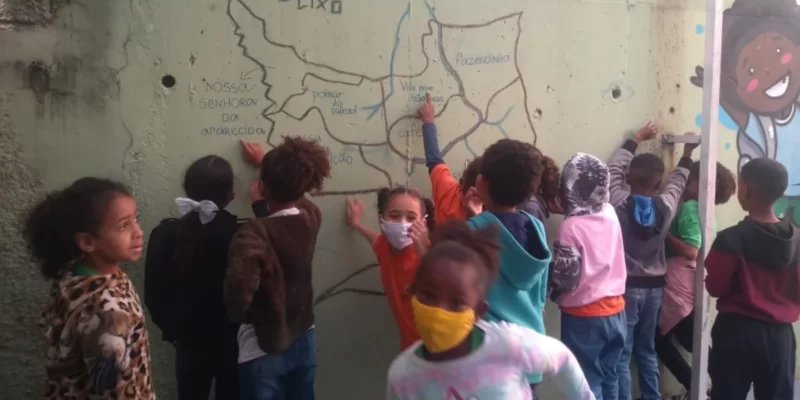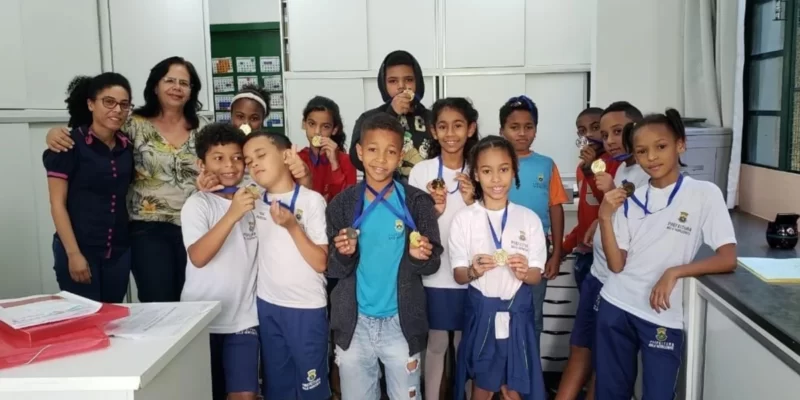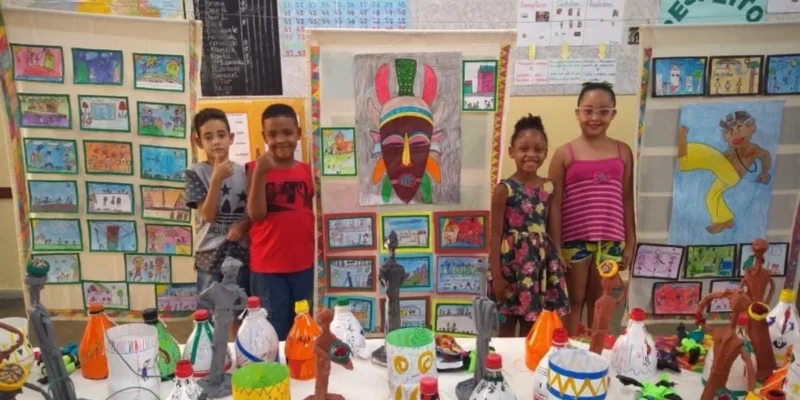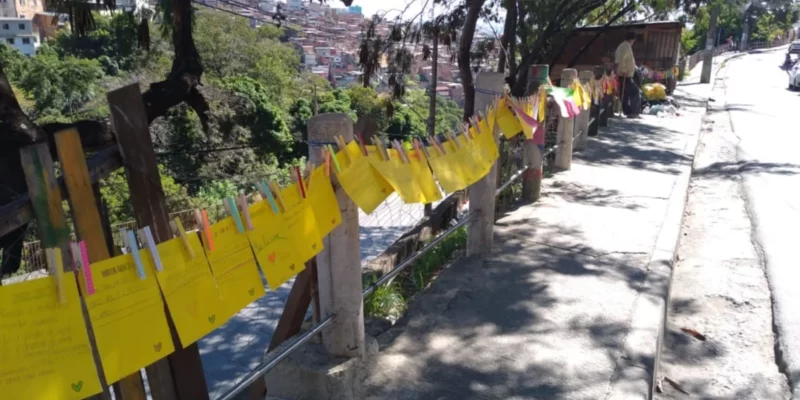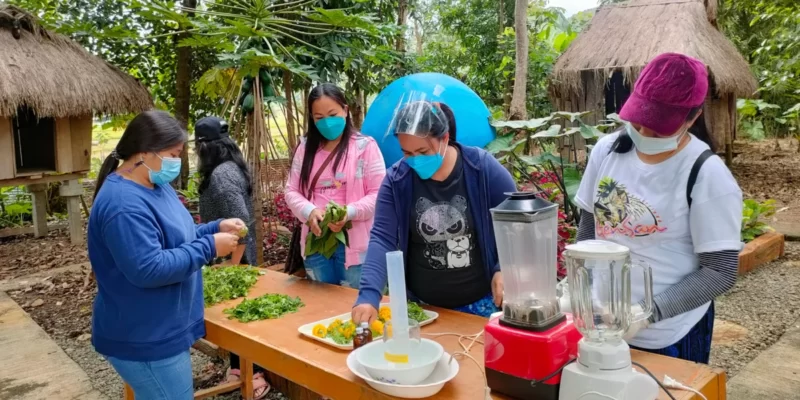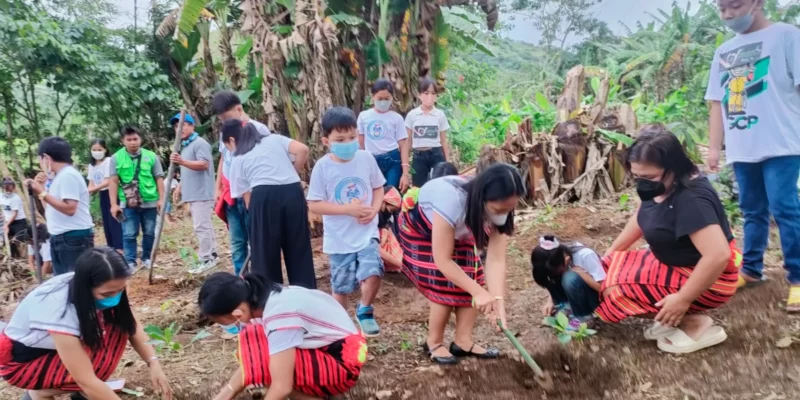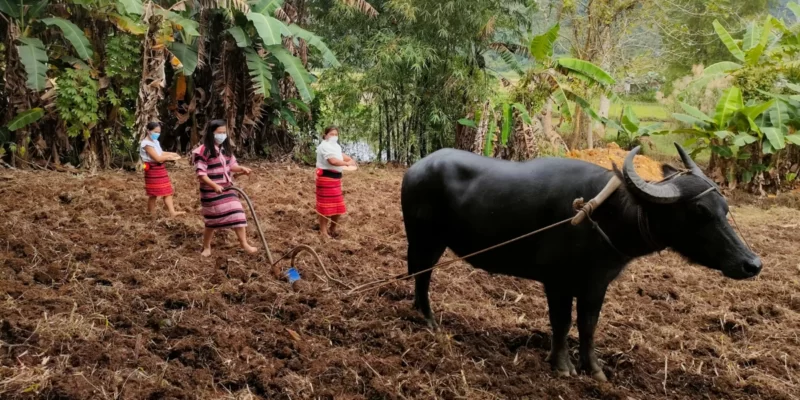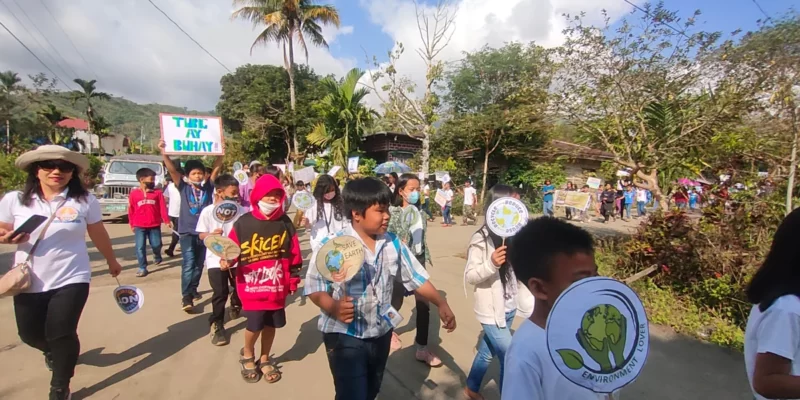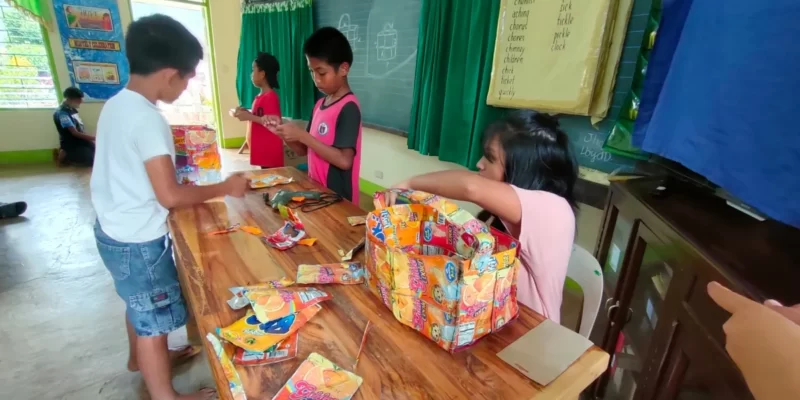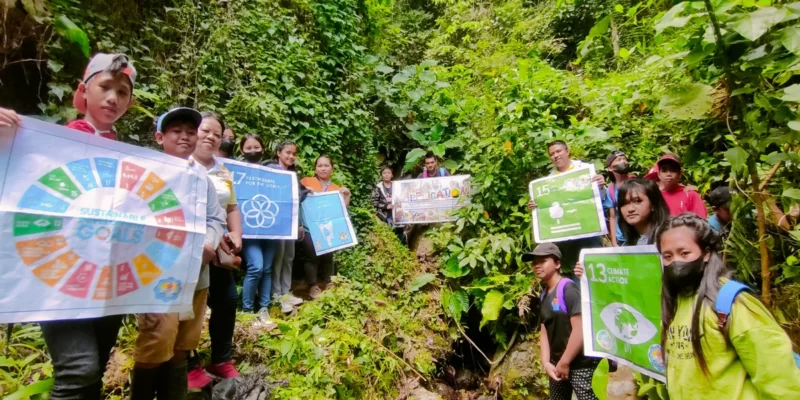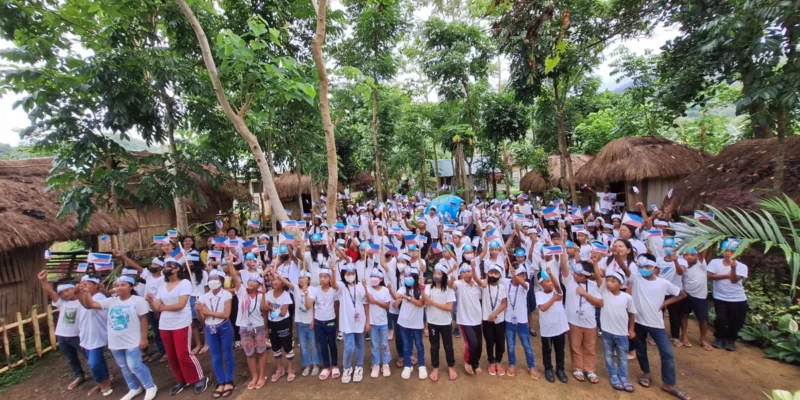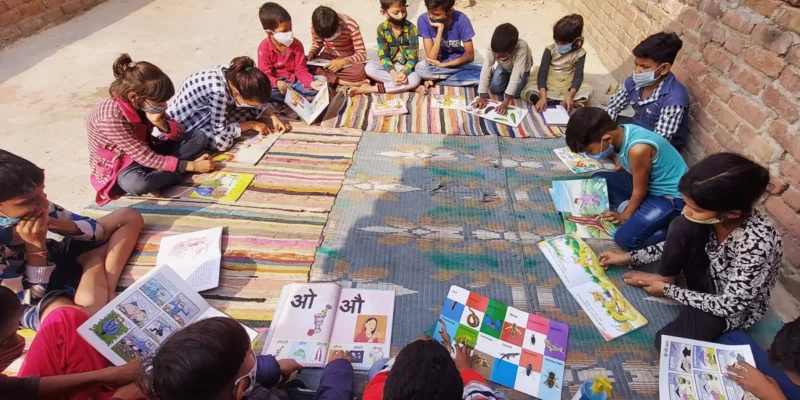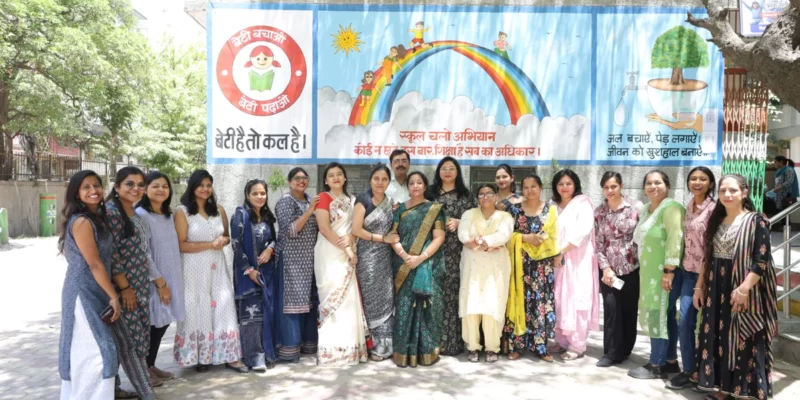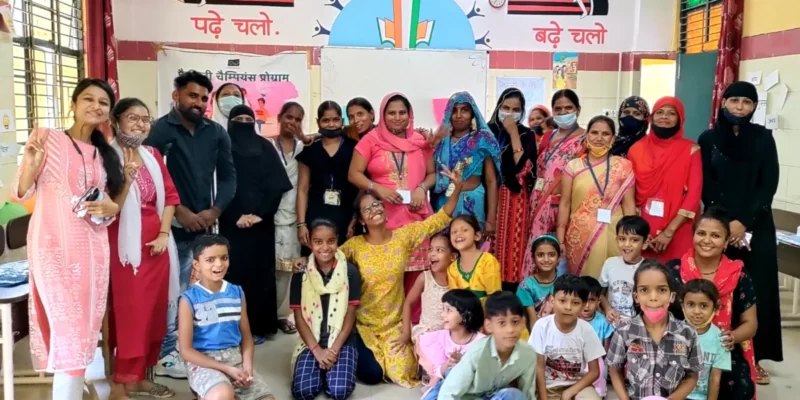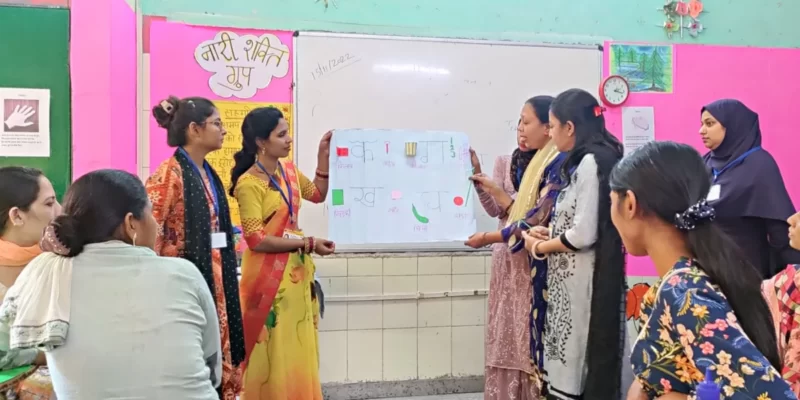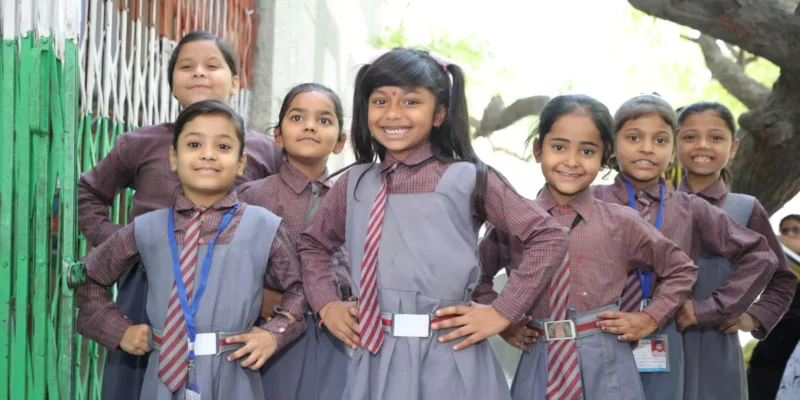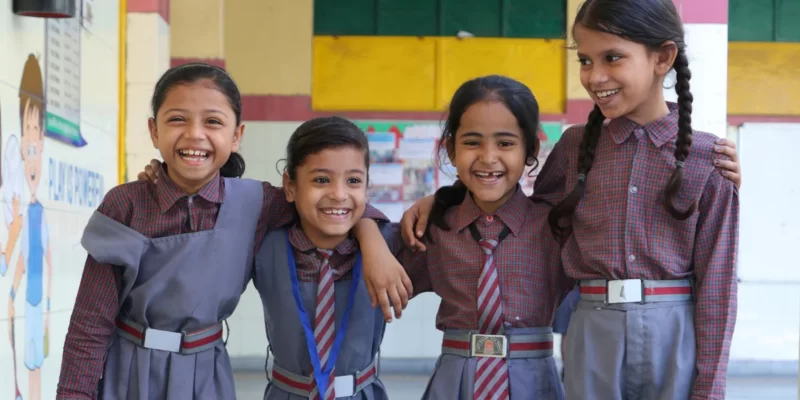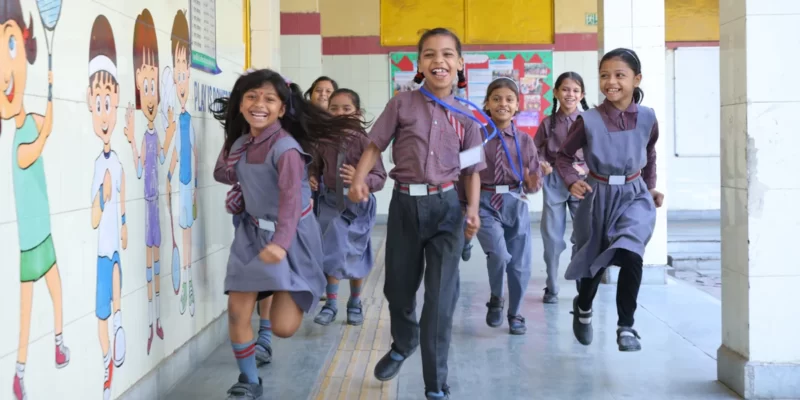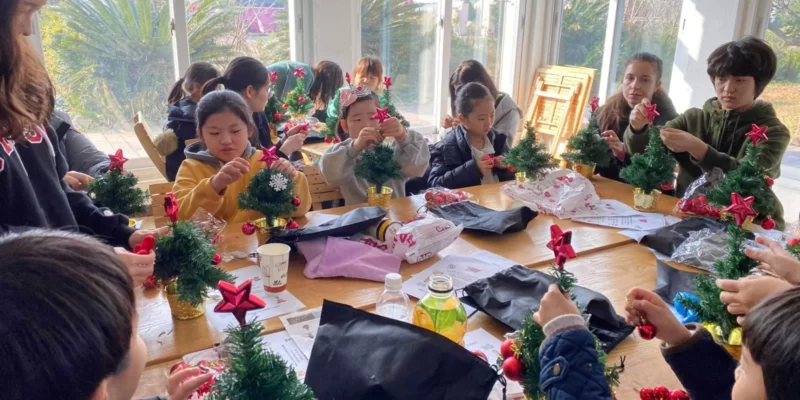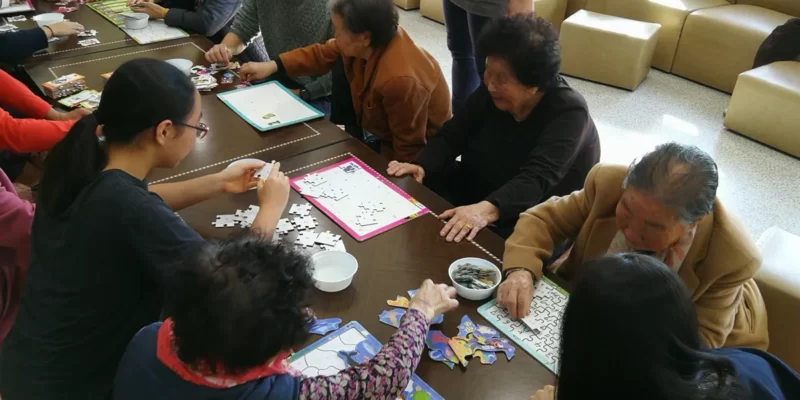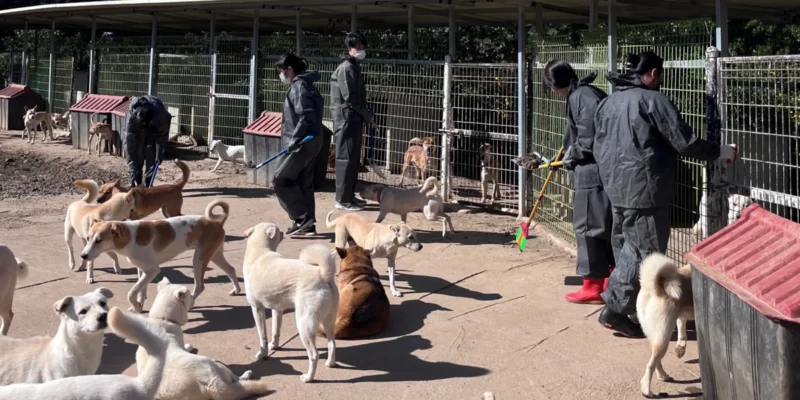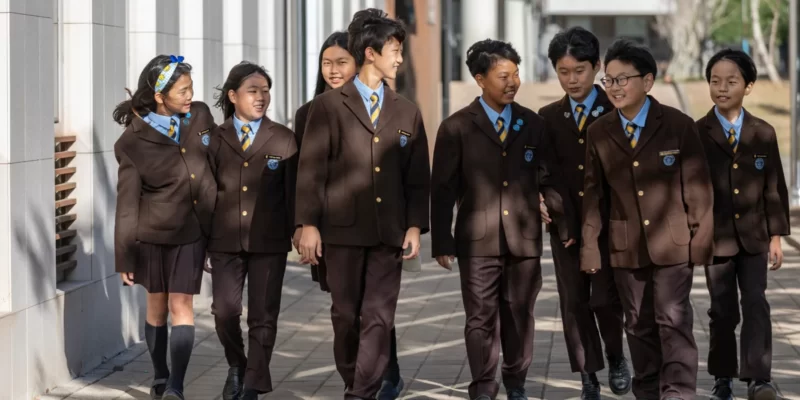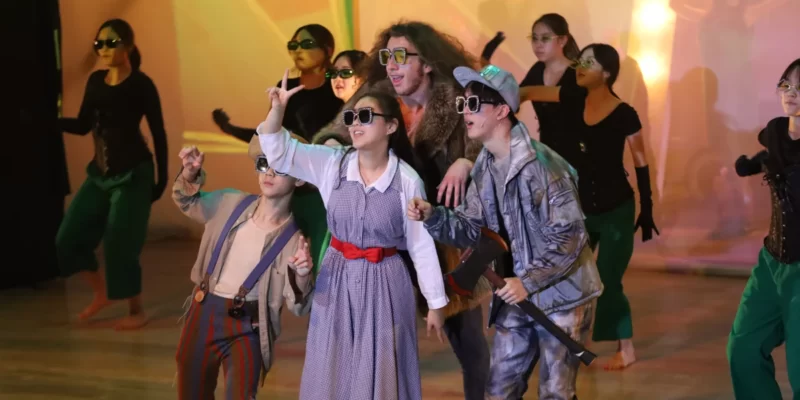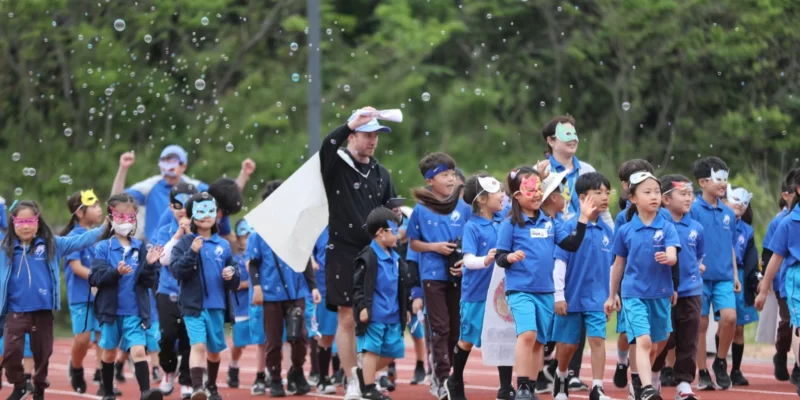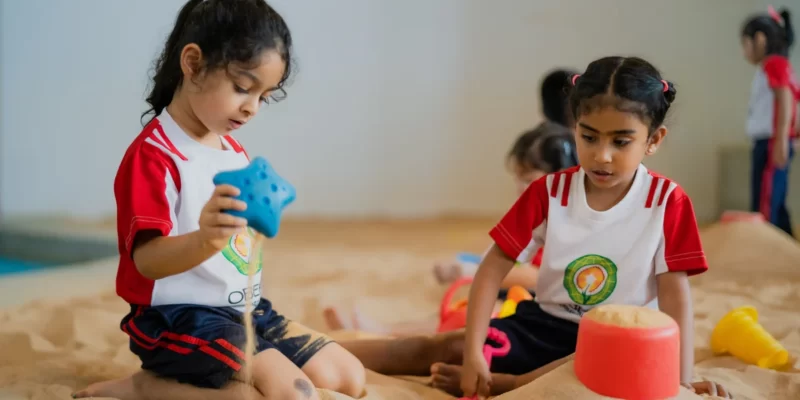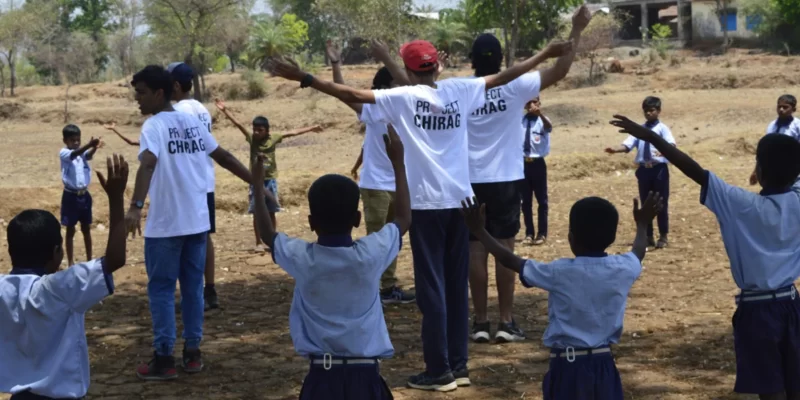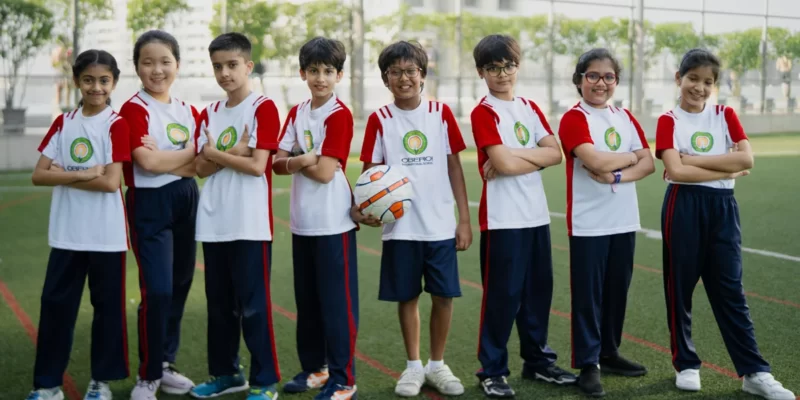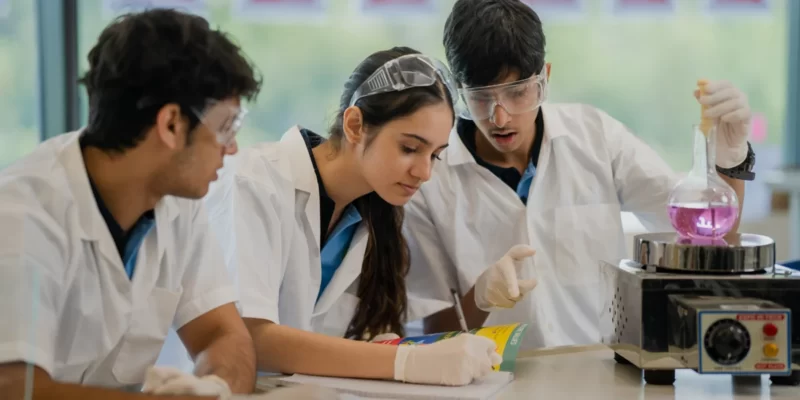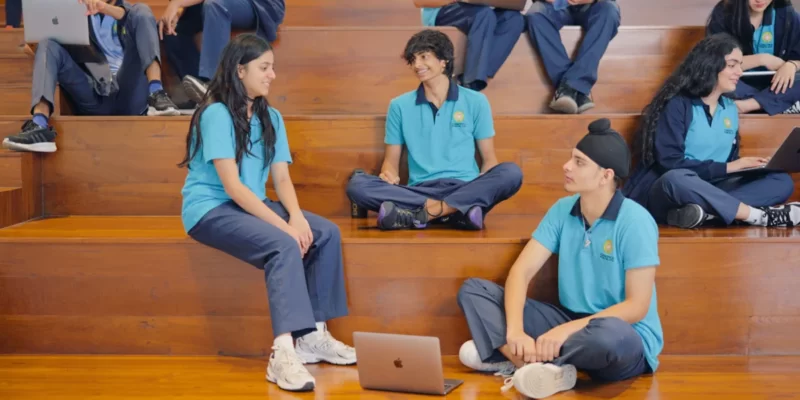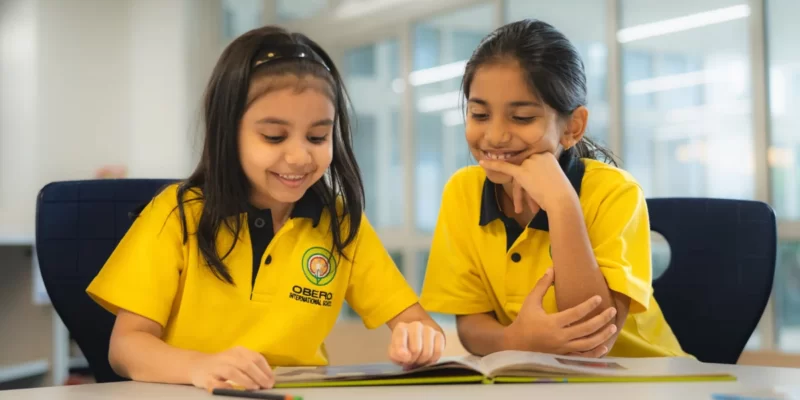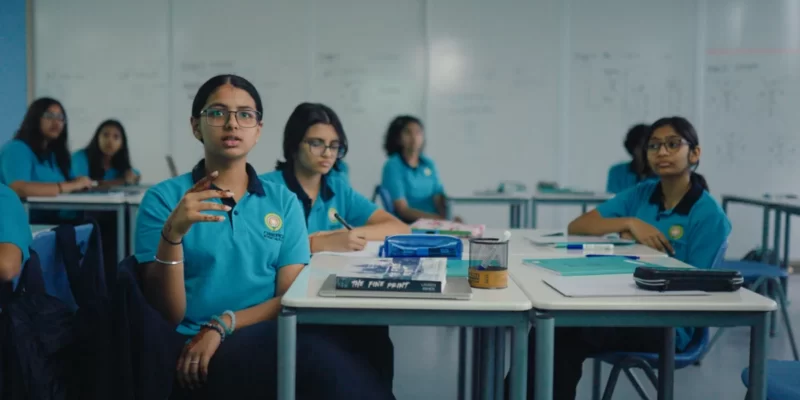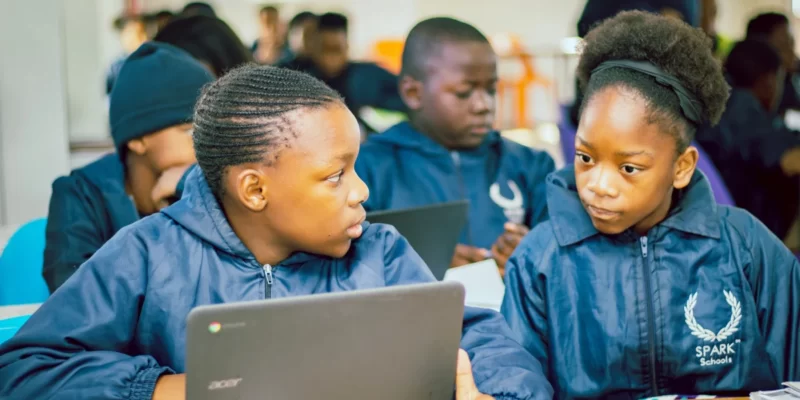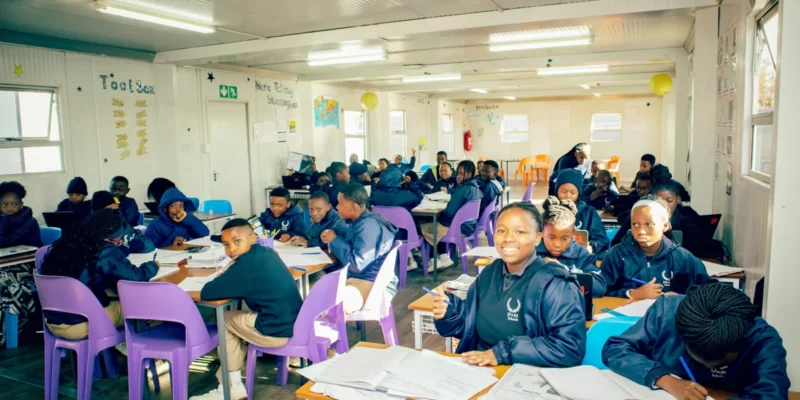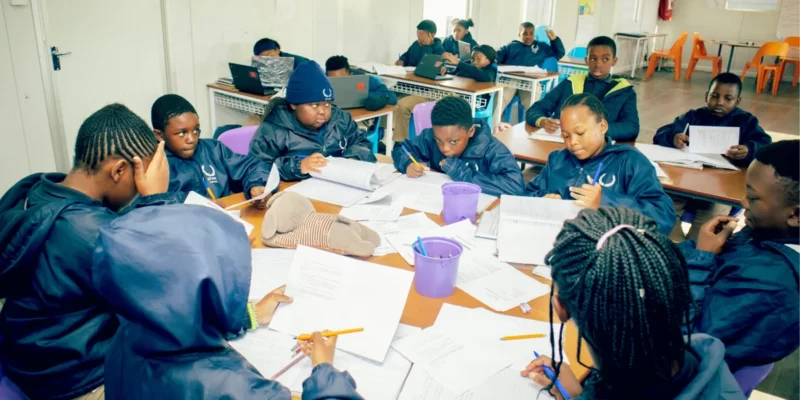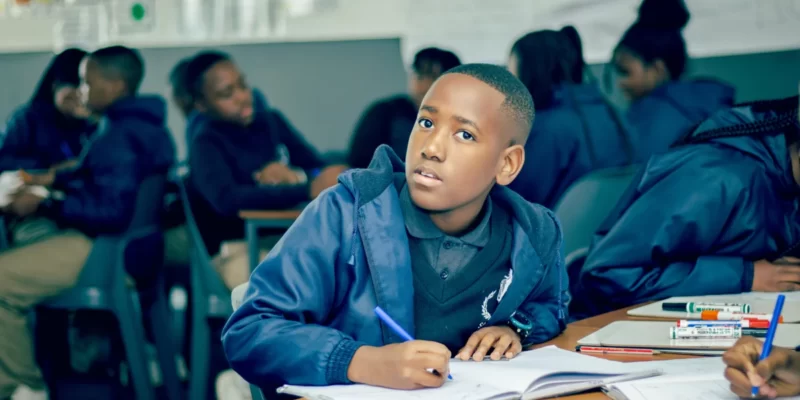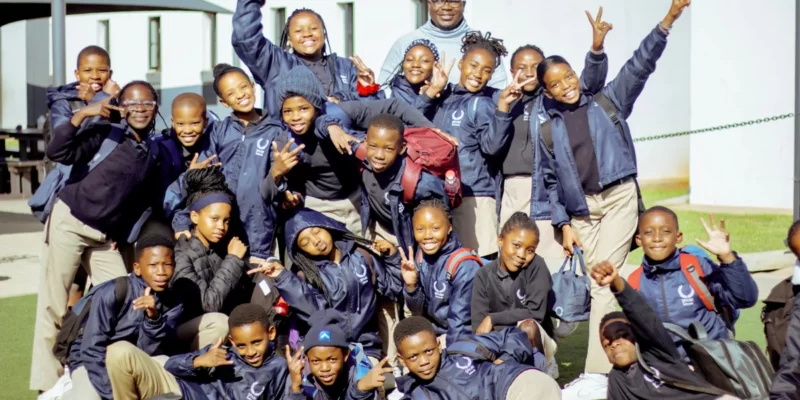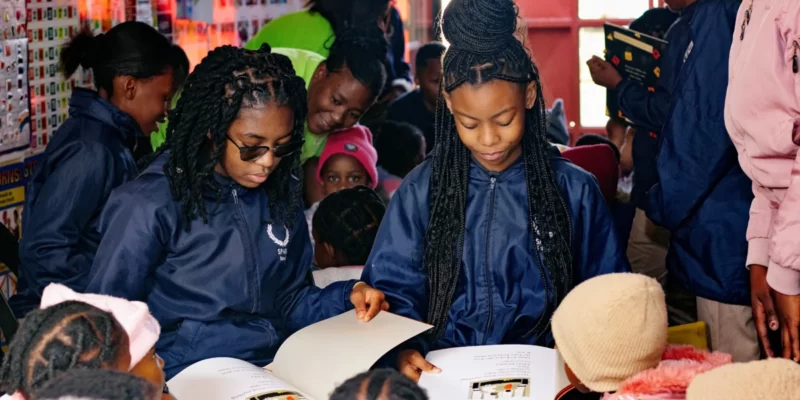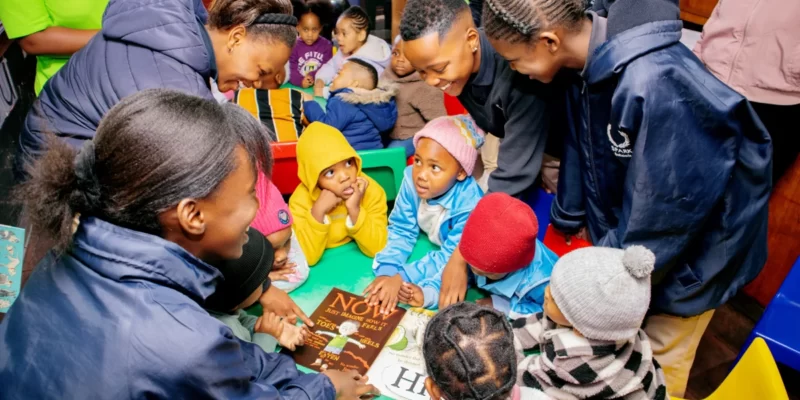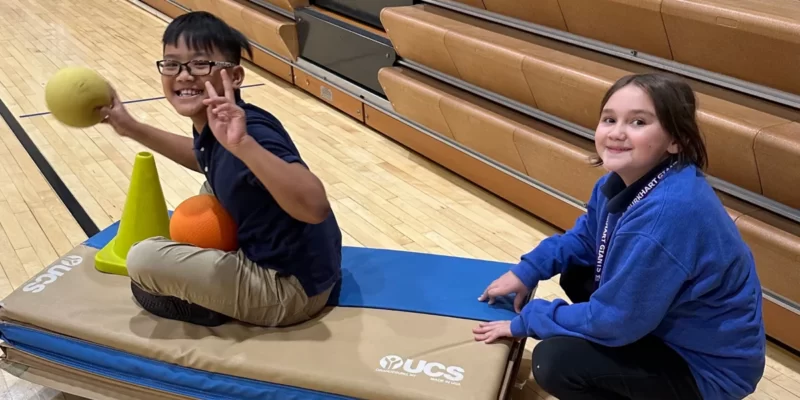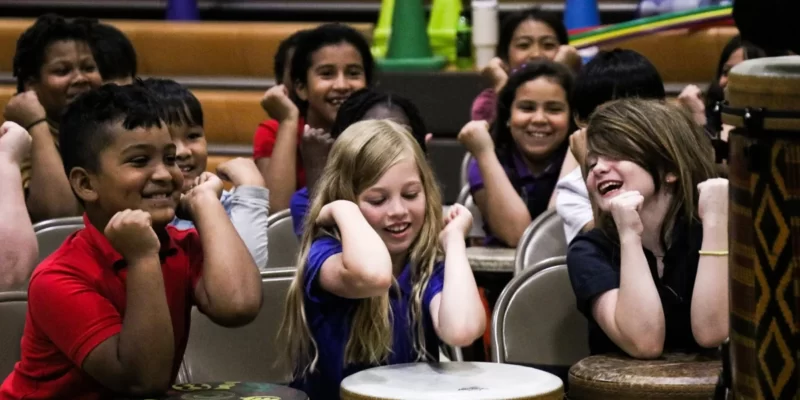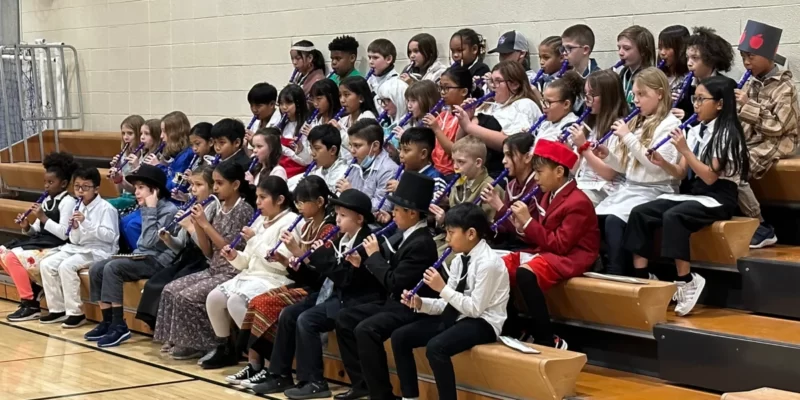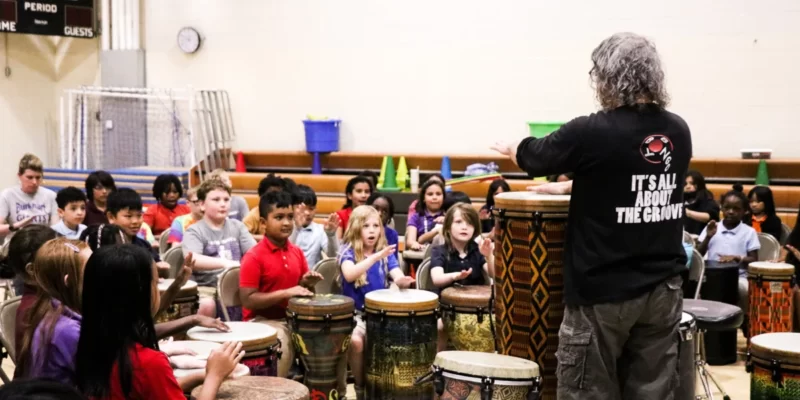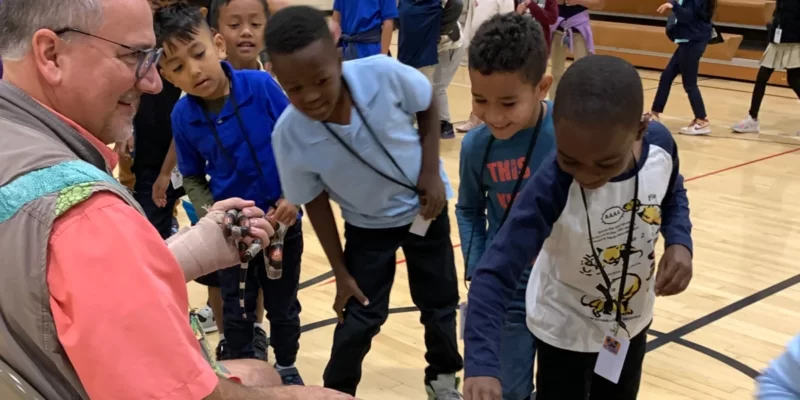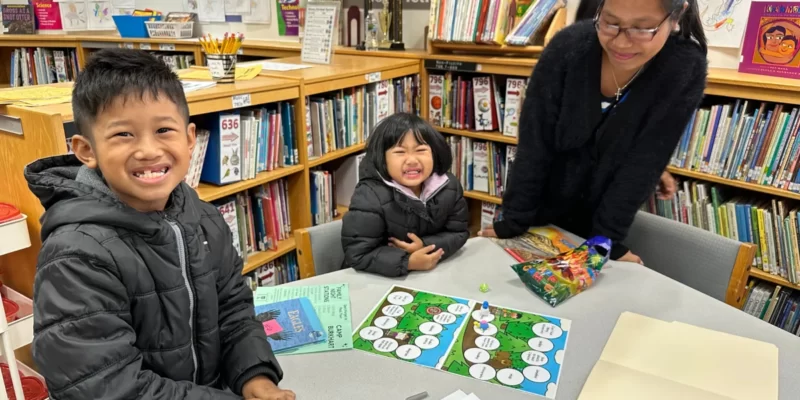- Home
- World’s Best School Prizes
- The Five Prizes
- Community Collaboration
The World’s Best School Prize for Community Collaboration recognises and celebrates schools that have collaborated and developed meaningful partnerships with their wider community to have an integrated approach in helping each of their students striving for a whole child approach based on equity and inclusivity.
Discover the winning and shortlisted schools, celebrated for their outstanding community partnerships, commitment to inclusivity, and transformation into vibrant community hubs.
Winner
Colegio María de Guadalupe
Buenos Aires, Argentina
Our Top 3 Finalists
Buenos Aires, Argentina
New York City, USA
São Paulo, Brazil
Top 10 shortlist
C.S Georges Malaika
Democratic Republic of the Congo
Colegio María de Guadalupe
Argentina
Community School Salomé Ureña Leadership Academy MS 322
New York City, USA
Impact | Puget Sound Elementary
United States of America
Vittra Landborgen
Sweden
Top 10 shortlist
ACS International School Cobham
United Kingdom of Great Britain and Northern Ireland
Barham Primary School
United Kingdom of Great Britain and Northern Ireland
Booker Washington Institute
Liberia
Kongkong Elementary School
Philippines
NLCS Jeju
Republic of Korea
ACS International School Cobham
United Kingdom of Great Britain and Northern Ireland
Barham Primary School
United Kingdom of Great Britain and Northern Ireland
Booker Washington Institute
Liberia
Kongkong Elementary School
Philippines
NLCS Jeju
Republic of Korea
Top 10 shortlist
G.L. David Memorial Integrated School
Westside Elementary
Khoj School
G.L. David Memorial Integrated School
Westside Elementary
Khoj School
Beaconhouse School System Primary Campus Sargodha
Pakistan
Giving child labourers a brighter future
Beaconhouse Primary Campus Sargodha, an independent kindergarten and primary school in rural Sargodha, Pakistan, stands as a paragon of community collaboration, reintegrating child labourers into education through its transformative "Brighter Futures" project. Motivated by the urgent need to shift local norms from labour to learning, the school launched this initiative in the 2021-22 academic year, serving as a crucial educational refuge for children otherwise bound to premature work.
The "Brighter Futures" project has significantly altered life trajectories for its participants, with 85% of enrolled children achieving basic literacy and numeracy within the first year. Despite initial resistance from families reliant on child labour for income, the project successfully enrolled 20 children, tailoring educational pathways to each child's needs and background. This bespoke approach ranged from foundational learning for younger children to accelerated programmes for older students, ensuring appropriate educational engagement for all.
Beyond individual success, the programme has catalysed wider community transformation. Parents and local stakeholders, initially hesitant, now enjoy the palpable benefits of education, leading to increased support for the initiative. This engagement is crucial in a region where child labour is often normalised. The school's efforts have fostered a broader cultural shift towards valuing education over child labour, with children themselves becoming advocates within their communities, teaching literacy skills to peers and family members.
Should Beaconhouse Primary Campus Sargodha win the World’s Best School Prize for Community Collaboration, the prize money would be invested in expanding the project, enhancing educational resources, and broadening community engagement initiatives. These efforts aim to sustain and deepen the project's impact, ensuring that education remains a viable and valued pathway for all children in the community.
C.S Georges Malaika
Democratic Republic of the Congo
Breaking down barriers for girls and giving skills and clean water to the community
C.S Georges Malaika, a charity-funded kindergarten, primary and secondary school in Kalebuka, Democratic Republic of the Congo, confronts the cultural biases and systemic barriers obstructing girls' access to education whilst building skills and providing clean water for the community. Dedicated to empowering its 430 students, the school integrates technology and diverse educational strategies within a curriculum fortified by community service and local engagement.
Strategically located in an area with significant socio-economic challenges, the school has established itself as a pivotal entity in promoting gender equity and community development. Its comprehensive approach includes STEM subjects, languages, arts, and vocational training, ensuring that students are not only academically proficient but also equipped with critical life skills.
The school's success is evident in its impact, with 100% of its students passing national exams with an average score of 80%, and all graduating students continuing to higher education. These achievements are complemented by transformative community projects that take place at the Malaika Community Centre, which annually supports over 6,000 individuals with vocational training, health, literacy, and sports programmes. Initiatives like the vocational training programme and the clean water programme, which benefits over 36,000 people annually, show that Malaika does not just educate but also actively enhances the quality of life in the community.
Specifically, the Community Centre’s Nzuri Skills programme equips youth with vital mechanical, electrical, and vocational skills, fostering economic self-sufficiency, while its clean water initiatives, revitalising 31 wells, profoundly enhance community health and wellbeing. These illustrate the school’s steadfast commitment to sustainable development and empowering Kalebuka’s broader community.
Such initiatives have reshaped community perspectives, increasing enrolment rates and promoting gender equity. The school's comprehensive approach therefore enhances academic proficiency and equips students with crucial life skills, preparing them to be proactive leaders in societal development.
Should C.S. Georges Malaika win the World’s Best School Prize for Community Collaboration, the award will be utilised to expand its transformative programmes, reinforcing its mission to empower girls and transform communities in rural DRC by further integrating educational and community service efforts.
Colegio de Alto Rendimiento Arequipa
Peru
Cultivating inclusive leaders through transformative education
Colegio de Alto Rendimiento Arequipa (COAR Arequipa), a state secondary school in Arequipa, Peru, empowers students and fosters global leaders, breaking social barriers with projects to promote empathy and inclusion. Established in 2014 and driven by a commitment to overcome local social barriers and enhance intercultural understanding, this residential school nurtures high-performing students from varied backgrounds, focusing on ethical development and socio-emotional growth alongside academic achievement.
With 300 students, COAR Arequipa stands out for its commitment to developing leaders with a global and intercultural perspective. The school provides a fully residential programme, fostering an immersive learning environment that emphasises not only academic achievement but also socio-emotional growth and ethical development.
A key initiative, the "CREATING SMILE" project, exemplifies the school's dedication to community service and inclusion, supporting children with multiple disabilities in partnership with CEBE Auvergne Perú-France. Through activities like clowning, music, and dance, COAR students foster deep connections and empathy, breaking down social barriers and promoting mutual respect.
Leadership at COAR Arequipa is committed to rigorous academics integrated with social responsibility, cultivating students who not only excel scholastically but also emerge as compassionate global citizens. This and the “CREATING SMILE” project’s success have catalysed a broader application of the school’s inclusive practices, inspiring other schools to adopt similar approaches, thereby extending the COAR Arequipa’s impact beyond its immediate geographical area.
Should Colegio de Alto Rendimiento Arequipa win the World’s Best School Prize for Community Collaboration, the prize money would be allocated towards enhancing its educational facilities and broadening its outreach activities, aiming to deepen its transformative impact both locally and regionally.
Colegio María de Guadalupe
Argentina
Building bridges: Fostering educational and vocational success
Colegio María de Guadalupe, an independent school in Buenos Aires, Argentina, empowers economically vulnerable students with a comprehensive model that blends academic learning with professional development, transforming employment outcomes and fostering community success.
Established in 2012, the school educates 700 students from kindergarten through secondary education. The core of the school's mission is rooted in inclusivity and innovation, emphasising personalised, full-time education from the first grade and culminating in a Bachelor’s degree with specialisations in Administration, Environment, Programming, or Audiovisual Production.
The Labour Inclusion Programme is central to achieving seamless integration of education with employment opportunities. This initiative enhances students’ employability by equipping them with 21st-century skills and digital proficiency, supported by partnerships with local companies, NGOs, and families. Notably, the programme has led to a decrease in the rate of graduates who neither study nor work from 21% to 13% and an increase in those securing formal employment from 12% to 30% within two years.
The leadership at Colegio María Guadalupe, including Principal Luis Arocha and Institutional Development Director María Luz Diez, fosters a culture that embodies the school’s ethos of resilience and empowerment. The work and effort of the educational teams have significantly boosted the school's impact on community and student success, as seen in the stories of students like Lula, who overcame personal challenges to begin her Digital Business degree, and Enzo, who accessed his dream job at Volkswagen.
Additional activities include the Mentoring Programme and Vocational Inclusion Programme, each contributing significantly to personal growth and community development.
Should María de Guadalupe College win the World's Best School Prize for Community Collaboration, it plans to invest in technological advancements for its Labour Inclusion Programme, enhancing the quality and reach of its training initiatives and ensuring that more young people have the tools necessary for success in the digital age.
Escola Estadual Deputado Pedro Costa
Brazil
Transforming students into community leaders and creative thinkers
Escola Estadual Deputado Pedro Costa, a state primary school in São Paulo, Brazil, stands as a beacon of innovation in public education. Celebrating over 71 years of history, the school has pioneered programmes in chess, athletics, and artistic gymnastics, designed to foster not just academic excellence but holistic personal development and social integration among its 305 students.
Driven by a mission to develop conscious, transformative citizens, the school has revitalised its approach to education by integrating unique sports and cognitive activities. This initiative has catalysed significant community engagement, turning the school into a vibrant hub where local resources are leveraged to expand educational opportunities.
The Chess Project, initiated by Professor Leonardo Alcântara, uses the strategic game as a tool for enhancing cognitive skills and social interaction, teaching students to think ahead and consider the consequences of their actions, both on and off the board. Similarly, the Athletics and Artistic Gymnastics programmes, introduced by Professor Luiz Fernando Junqueira, aim not only at physical development but also at building resilience and teamwork, essential skills for today’s students.
These programmes have shown remarkable success, evidenced by increased student participation in national championships and enhanced community cohesion. Parents and local organisations are actively involved, supporting not only through attendance but also by participating in events and workshops, demonstrating the profound impact of the school’s initiatives on the local community.
Should Escola Estadual Deputado Pedro Costa be awarded the World’s Best School Prize for Community Collaboration, the prize money would be used to further enhance facilities and expand these impactful programmes, deepening its commitment to developing well-rounded, transformative individuals.
Impact | Puget Sound Elementary
United States of America
Cultivating tomorrow's leaders through community-driven education
Impact | Puget Sound Elementary, a public charter school in Tukwila, Washington, USA, is driving change within the community through culturally-responsive education. Established in 2018, the school integrates social-emotional learning deeply into its curriculum, significantly enhancing student success and community integration.
This vibrant, inclusive school educates 470 students from kindergarten through 5th grade (primary), focusing on developing 21st-century skills within a culturally-responsive framework. Its educational model features school-based mentor groups, personalised learning pathways, and project-based learning to address the urgent need to close the growing opportunity gap, particularly among low-income students, homeless students, students of colour, Multilingual Learners, and students with disabilities.
A powerful example of this approach is a kindergarten student who, after facing significant behavioural challenges and expulsions from previous institutions, showed dramatic improvement through a tailored social-emotional learning plan, reflecting the school's commitment to transforming lives.
The leadership at Impact | Puget Sound Elementary exemplifies how community-built, collaborative models can empower parents and community members. Commitment to the school’s core value of Brave Solidarity - the belief that diversity strengthens and enlivens us - has helped transform a School Advisory Council into an active parent organising committee, significantly impacting community engagement and advocacy.
The school's commitment to community collaboration is evident in its extensive partnerships with childcare providers, school district leaders, community organisations, and faith-based organisations. These collaborations have led to impactful community-based projects such as “Girls on the Run” and “Let Me Run,” programmes that not only provide extracurricular care but also empower students with daily social-emotional learning lessons. Another notable initiative involved local indigenous communities, where students deepened their cultural understanding through museum visits and field trips, learning from and teaching about local history.
These initiatives address specific community needs identified through a comprehensive engagement process that started even before the school opened its doors. By integrating educational excellence with community-oriented projects, the school not only enhances academic performance but also actively participates in societal change, addressing local issues through student-led advocacy and projects.
Should Impact | Puget Sound Elementary be awarded the World’s Best School Prize for Community Collaboration, the funds would be used to further enhance classroom libraries and align curriculum materials with the project-based learning approach, empowering students to continue making impactful changes as community changemakers.
Kakenya Center for Excellence
Kenya
Empowering girls through education, health, leadership and community engagement
The Kakenya Center for Excellence, a government-funded primary boarding school for girls near Kilgoris, Kenya, breaks harmful cultural norms by empowering girls through education, health, and leadership initiatives, achieving a 100% transition rate to secondary education and transforming community attitudes towards gender equality and female genital mutilation (FGM). Established in 2009 by Dr. Kakenya Ntaiya, the school focuses on breaking the cycles of poverty and gender inequality.
Serving 197 primary school girls, the school’s mission is rooted in a holistic educational model that includes healthcare, leadership training, and career counselling. By integrating local religious leaders, elders, teachers, and parents in governance, the school ensures its programmes are culturally appropriate and community-supported.
The parent organisation, Kakenya's Dream, is instrumental in preventing FGM and child marriages - prevalent in Maasai culture where 51% of women undergo FGM and 50% are married before 19 - by securing parental agreements and fostering community dialogue. This has led to a significant shift in local attitudes: fathers, once indifferent, now actively champion their daughters' education, with the school facing a surge in enrolments as community perceptions evolve.
Leadership at the centre, including School Principal Pacifica Onyango and Director of Programmes Daniel Korinko, drives a culture of empowerment that has positioned the school as a beacon of change. Their efforts have been recognised nationally, with students consistently ranking in the top 10% on exams.
Additional activities include partnerships with the Ministry of Education and local leaders, amplifying the school’s impact and fostering broader societal change. These collaborations ensure that the school’s practices serve as a model for educational excellence across Kenya.
Should The Kakenya Center for Excellence win the World's Best School Prize for Community Collaboration, the school intends to expand its transformative programmes, enhancing its infrastructure to support more students and further empowering girls to lead societal development in Kenya and beyond.
Kalvi International Public School
India
Kalvi International Public School
Kalvi International Public School, an independent school in Madurai, Tamil Nadu, India, transforms lives through education and sports, empowering students from disadvantaged backgrounds to achieve excellence. With top-quality facilities and active community outreach, the school champions holistic development and societal integration.
Since its inception in 2018, KIPS has engaged 2,359 local students in sports, reducing juvenile delinquency and fostering community involvement. The school's efforts have led to significant achievements, including 15 students reaching national championships, showcasing the transformative power of integrating sports with education.
The leadership at Kalvi International Public School is committed to maintaining high academic and ethical standards, which are evident in their extensive community work and partnerships with local NGOs and government bodies. This collaboration has enabled the expansion of educational facilities and sports programmes, impacting not only students but also the broader community.
Additional activities at the school include targeted outreach to underprivileged children, providing them with access to quality education and sports training. This initiative has successfully incorporated 452 students from slum areas into the educational system, significantly enhancing their life prospects.
Should Kalvi International Public School win the World's Best School Prize for Community Collaboration, the prize money would be used to further develop its sports and educational facilities, aiming to reach an even broader segment of the community and continue transforming lives through holistic education.
Community School Salomé Ureña Leadership Academy MS 322
New York City, USA
Empowering students through holistic support and community engagement
Community School Salomé Ureña Leadership Academy MS 322, a state secondary school in New York City, USA, is a beacon of hope and resilience, particularly for immigrant families in its community through its holistic support. The school was catalysed by the urgent need for comprehensive educational and wellness support during the pandemic, which exposed significant socialisation and emotional distress among students. In collaboration with Children’s Aid, a non-profit organisation serving children and families, tailored programmes were created focusing on social-emotional learning, equity, and leadership to equip students to advocate for justice and equality.
The academy serves 280 students and integrates health and wellness services directly into the student experience. Children’s Aid school-based health centre and mental health services have proven pivotal. For instance, since the introduction of these services, the school has seen a remarkable reduction in school coexistence issues by 29% and disciplinary absences by 5% in 2023 alone. The school's promotion rate has soared from 93% to 96%, demonstrating the effectiveness of its holistic approach.
Administratively, the school's commitment to adaptability and inclusivity ensures programmes evolve with the community's changing needs. This proactive approach has solidified its role as a central community hub, providing crucial services like medical, dental, mental health, and nutritional support that many students would otherwise lack access to.
Building on its foundation as a community school, the academy has deepened its commitment through partnerships with Children’s Aid, local NGOs and businesses. Initiatives like career days and health workshops, specifically tailored to the needs of its diverse student body, have fortified community ties and fostered an environment where educational and holistic growth go hand in hand, enhancing the socio-economic landscape of the area.
Should Salomé Ureña Leadership Academy MS 322 win the World's Best School Prize for Community Collaboration, the school plans to further enhance its community support systems, ensuring that every student has the tools needed to succeed in all aspects of life. This funding would enable the expansion of their health services and the replication of its community school model, which has already inspired other educational institutions worldwide.
Vittra Landborgen
Sweden
Empowering sustainable communities
Vittra Landborgen, an independent primary and secondary school in Helsingborg, Sweden, empowers students with initiatives like Sustainable School Commutes and Urban Gardening, driving community change through innovative education. These projects actively engage students in practical sustainability practices, enhancing their understanding and responsibilities as global citizens. Established in 2001, the school educates 280 students, embedding the Sustainable Development Goals into daily learning to deepen community collaboration.
Leadership at Vittra Landborgen fosters a culture of democracy and inclusivity, supporting a curriculum that prepares students for future challenges. Their efforts are evident in projects like the Sustainable School Commutes and Urban Gardening, which not only engage students with local authorities but also embed practical sustainability skills.
The school’s interdisciplinary projects extend beyond conventional classroom settings, involving students in urban farming and local ecological studies. These activities not only contribute to educational innovation but also enhance community collaboration, recognised locally as exemplary.
Merit values for 9th graders at Vittra significantly exceed expectations, demonstrating the success of the school’s educational approach. The merit value achieved is 248, against an expected 192, highlighting notable academic excellence. Additionally, the school maintains a waiting list due to high demand, reflecting its strong reputation within the community.
Should Vittra Landborgen win the World's Best School Prize for Community Collaboration, the prize money would fund a climate change solutions fair, aiming to expand its mission of fostering proactive global citizenship among students, thus embedding further sustainability into the community’s fabric.
ACS International School Cobham
Cobham, England, UK
The power of partnerships and community: ACS International School Cobham’s work to be the best for the world ACS International School Cobham, an independent school in Cobham, Surrey, UK, is a shining example of what it truly means to make a difference in the lives of others. Through their exceptional partnerships, outreach programmes, and charitable endeavours – and most impressively with their STEAM 2022 project bringing together thousands of students in the wider community through gamified learning at a theme park – the school is working for the betterment of all.
ACS International School Cobham is part of the ACS International Schools group. The ACS group itself became a registered charity in 2018 with a view of collaborating with other schools and communities to enrich everyone’s education by sharing expertise and resources. The partnerships model is free to all schools in the network and provides access to facilities, expertise and other benefits such as counselling, financial and legal advice, teacher CPD and more.
In response to ACS Cobham’s community's request for STEM education, the school developed its STEAM 2022 project. After months of planning and collaboration, the school hosted an event at Thorpe Park in Surrey, bringing together 75 partners, including The Queens Colours Squadron, The RAF, The Mercedes F1 team, and many more. The event attracted 10,000 state school children, free of charge.
The school’s charity partners helped ensure that the event was as inclusive as possible, working with UTCAI to bring inner city children, Inner Wings to engage girls, special schools to accommodate SEND students, Meru to work with disabled children, children's hospices, and various links with the refugee communities.
To gamify the event, the school created an approach where all educational content was linked to curriculum content, and students had to complete educational experiences to gather 'stamps.' Once they had collected five stamps, they gained access to the roller coasters. This approach allowed the school to capture important evaluative data on who did what, their gender, age, and demographic. In total, the day logged a total of 51,318 hours, as well as 42,765 hours of learning before the event with resources we had provided.
If ACS International School Cobham wins the World's Best School Prize for Community Collaboration, it intends to provide partner schools’ reading and writing programmes with free book vending machines and outdoor library sheds. It sees this project helping dramatically with getting the region back on track after the pandemic.
Barham Primary School
Wembley, London, UK
Inspiring self-belief and igniting futures: By honouring diversity and identity, this school elevates a whole community
Barham Primary School, a state school in Wembley, London, UK, transcends the confines of its deprived environment and propels its students towards a future of greater opportunity. By focusing on nurturing the identity and potential of its diverse students, the school empowers them to embrace ambitious goals while honouring their cultural values. This emphasis on developing cultural capital and cultivating an authentic voice enables students to navigate their diverse backgrounds with confidence and self-belief.
Barham faces challenges most other primary schools don’t: with 930 pupils, well above the national average, and 31 different languages within the student population, as well as various religious beliefs, the school is also in an area of social housing estates and intersecting community groups, exposing students to various societal issues such as gangs, grooming, radicalisation, drugs, poverty, and hunger.
Despite these challenges, Headteacher Karen Giles has been unwavering in her dedication to the school community, proactively fostering strong relationships with parents and always going above and beyond to create an inclusive and aspirational environment, making her a singular force in driving positive change. Giles and her team actively engage parents in developing language proficiency and essential skills as a first means to promote student success. They also work closely with community groups, especially first and second-generation immigrants, as a means to reduce marginalisation, empower individuals, and create a sense of belonging and support.
The school’s curriculum is also built upon the twin pillars of cultural capital and authentic voice. At the heart of this curriculum is the school’s “5R” model, which weaves together five essential skills – relationships, reflectiveness, resilience, resourcefulness, and risk taking – empowering students to embrace their full potential and navigate their educational journey with confidence.
This framework equips students with the self-awareness, determination, independent thinking, and empathy to successfully transition to secondary schools and further, more challenging, learning paths. Alumni regularly come back, showcasing the achievements made possible through Barham's commitment to breaking the glass ceiling.
If Barham Primary School wins the World's Best School Prize for Community Collaboration, Giles and her staff aspire to invest in a core team and cultural capital activities for their pupils and families. By prioritising these crucial resources, the school will continue to empower its community, nurturing potential, and making a lasting impact on the lives of its students.
Booker Washington Institute
Kakata City, Liberia
From the chains of poverty to beacon of hope, the Booker Washington Institute empowers Liberia’s youth with vocational education
Booker Washington Institute, a government technical secondary school in Kakata City, Liberia, is empowering students with the necessary skills and knowledge to break the country’s chains of poverty and unemployment. Every year, with over 60% of graduates successfully launching their own businesses, securing employment, or moving into tertiary education, the school has become a beacon of hope in Liberia's job market and youth advancement in general. The institution's visionary approach to technical and vocational education is a game-changer, paving the way for a new generation of self-sufficient and accomplished Liberians.
Booker Washington Institute was founded 94 years ago in 1929 on the principle that students needed practical, technical and vocational training to be prepared for the world of work. This became even more important over the course of Liberia’s history, especially in the wake of the 14-year-long civil war.
Today, Booker Washington Institute’s academic-TVET programme is a platform for job creation and entrepreneurship among its students, with an emphasis on agriculture, engineering, construction, hospitality management, business education, computer science, educational leadership, and much more. Altogether, the school provides students with the skills to become successful contributors to national and global development.
To ensure that students are well-equipped, the school attracts the best instructors with industrial experience and professionals in partnership with companies and businesses operating in Liberia. Through these partnerships, students are offered internships with the hope of employment upon completion of their internships.
At the same time, financial institutions and strategic businesses fund some of the best student entrepreneurs to start their own businesses, and those interested in agriculture are provided with resources and tools for start-ups as small cooperatives for production.
If Booker Washington Institute wins the World's Best School Prize for Community Collaboration, it plans to further its efforts in creating employment opportunities and contributing to local community and national development. This includes expanding partnerships with local businesses, funding student entrepreneurs, and increasing access to resources for crop production with a focus on smart climate agriculture activities involving solar technology. Booker Washington Institute will continue to empower its students to become successful contributors to society and agents of change in their communities.
Escola Municipal Professor Edson Pisani
Belo Horizonte, Minas Gerais, Brazil
A community’s voice and future: Escola Municipal Professor Edson Pisani improves lives in a favela through education and advocacy
Escola Municipal Professor Edson Pisani, a government kindergarten, primary and adult literacy programme school in Belo Horizonte, Minas Gerais, Brazil, has been a long-standing source of transformation and advocacy for its students and the Aglomerado da Serra, one of the largest and oldest favelas in Brazil. With its ability to mobilise students, families, and neighbours, and to coordinate with the government and local leaders countless times to educate, discuss, and propose actions for improvements in the area, the school is a proven voice for change by promoting sustainable living practices, reducing garbage, and improving the community’s quality of life.
For over 100 years, the Aglomerado da Serra favela has lived without any guaranteed basic rights, such as treated water, sanitation, and transportation. In the early 2000s, the favela saw several public structural works under the Vila Viva programme, which included a new road dividing the Aglomerado da Serrae. In 2013, the programme proposed a second phase, which included widening the street where the school is located and displacing many families.
To get the project architects and engineers to attend community meetings and thereby gain access to the project information, the Escola Municipal Professor Edson Pisani quickly organised the community, gathered signatures, and then partnered with the Federal University of Minas Gerais’ (UFMG) Faculties of Architecture and Law. Ultimately, this saved the many families from being removed, as initially proposed.
In the meantime, the Vila Viva programme had left debris all over the community, creating dangerous areas and causing an increase in garbage, pests, and diseases. It also created an issue around the community’s water sources. Here again, the school partnered with the UFMG’s School of Architecture to create the Water in the City Project, which studied the water problems and mapped out water points.
The construction work opened up a two lanes avenue, which would finally make it possible to accommodate a bus in the favela. More concerned about cars from the wealthy neighbourhoods, the municipality refused to create the bus line. The school then, in partnership with the Tarifa Zero movement, mobilised the community, organised meetings, collected more than 4,000 signatures and carried out numerous other actions to put pressure on the municipality. After two years of struggle, the bus line was created and connects the favela to the subway, generating more access to health, education and employment, thus guaranteeing the right of the favela population to come and go.
In the last year the school focus has been on urban waste management due to lack of facilities. Working with the School of Architecture at UFMG, alternatives have been designed and tested, ranging from the creation of gardens, urban furniture, and games. As a result, abandoned cars were removed from the school's street, the alleys where students live are cleaner and the school is moving towards zero waste production.
If Escola Municipal Professor Edson Pisani wins the World's Best School Prize for Community Collaboration, it intends to further improve the community's quality of life by implementing more sustainable initiatives, providing better access to education, and creating more opportunities for students to engage in community service.
Kongkong Elementary School
Kasibu, Nueva Vizcaya, Philippines
Tapping into Indigenous knowledge to tackle undernourishment
Kongkong Elementary School, a government school in the mountainous town of Kasibu, Nueva Vizcaya, Philippines, is tapping into Indigenous knowledge to champion local farming and tackle child undernourishment. Their Project APPLICATION has helped more than 97% of the school’s once undernourished students reach healthy nourishment.
The staff took a dumpsite at the back of the school in 2018 and used it as the grounds for Project APPLICATION (Applying Pro Environment Practices and Local Ideas, a Collective Advocacy Towards an Intimate care for Our Nature). With roughly 30% of the student population being Indigenous, the project aimed to transform the site into an Indigenous Peoples Village and Demo Farm that provides learning opportunities to share cultures, traditions, and safe local farming practices. To that end, the school won the support of the Municipal Local Government Unit of Kasibu and funding from the Parent-Teachers Association. With that, six houses were put up to represent both the majority (Ilocano) demographic and Indigenous Peoples groups (Kalanguya, Ibaloi, Bugkalot, Tuwali and Ayangan). The school brought in Indigenous Peoples elders to share their local, organic farming practices, which included how to make organic insecticide, organic fertiliser, and more for the Demo Farm.
During the pandemic, the learners, teachers, and parents applied the knowledge and skills they had gained from the project and established their own organic gardens at home. As a result, 100% of teachers and 94% of households were able to sustain themselves independently.
The school also started providing environment-related information education campaigns, symposia, and training workshops for proper waste segregation and recycling activities to learners in partnership with the Municipal Environment and Natural Resources Office of Kasibu and other partners.
If Kongkong Elementary School wins the World's Best School Prize for Community Collaboration, it intends to expand the project to reach more communities in Kasibu and other neighbouring areas, further promoting environmental responsibility and cultural diversity among learners, parents, and the community.
Nagar Nigam Pratibha Baalika Vidhyalaya F- Block, Dilshad Colony-1st
Delhi, India
Community-led education support: How one school engages and empowers parents for their students’ success
Nagar Nigam Pratibha Baalika Vidhyalaya (NPBV) F- Block, Dilshad Colony-1st, a government school in Delhi, India, has broken through the traditional mould to provide community-based interventions and support to bridge the gap between teachers, students, and parents. The school’s Family Champion programme has empowered parents to become leaders in their communities, thanks to which 65 out-of-school children have re-enrolled in school. With the school community's collaborative efforts, NPBV F- Block, Dilshad Colony-1st has redefined community engagement and proven that it can lead to exceptional success.
In 2020, the school’s teachers began to notice a growing disconnect between the students and their studies, mainly due to the COVID-19 lockdowns and the community feeling overwhelmed with their financial situation and other insecurities. In response, the school developed and launched its Family Champion programme to help students and their families to navigate the challenges of remote learning and stay engaged with their education.
The community parents, known as Family Champions, received a need analysis, baseline assessment, and continue to receive two training sessions per month led by Kshamtalaya Foundation to prepare them for their roles as educators and teacher leaders. In its first year, the programme onboarded 35 Family Champions, who focused on strategies for engaging children in learning at home, COVID and vaccination awareness, and self-care.
The programme then led to 54 community learning centres, 61 parent learning ambassadors, and home-based learning support, beginning with 30 Family Champion-led Learning Circles – collaborative and participatory learning groups – across the community. As a result, 90% of Family Champions have reported feeling more confident holding conversations with parents and teachers. The Learning Circles benefited 1,665 children in the past three years from 2020-23. This demonstrates the programme’s importance in building capacity, empowering parents, and improving children's foundational literacy and numeracy skills in the community.
If NPBV F- Block, Dilshad Colony-1st wins the World's Best School Prize for Community Collaboration, it plans to expand its Family Champion programme to other communities and train more Family Champions. This will create a solid basis for community-based educational interventions that empower families and communities to support student success.
NLCS Jeju
Jeju, Republic of Korea
Beyond the Curriculum: The ripple effect of NLCS Jeju's community service programmes
NLCS Jeju, an independent international boarding school offering a British Education located on the UNESCO world heritage site of Jeju, Republic of Korea, has created a ripple of positive change for both the students and the island community through its “Beyond the Curriculum” programmes that benefit society. With 16 active projects and over 1,300 students involved since 2017, the programmes have built trust and strengthened relationships, all of which promote a culture of collaboration and social responsibility.
Since the school's inception in 2011, NLCS Jeju has taken a proactive approach to community service. The school recognised the value of co-curricular activities (CCAs) in the holistic development of its students and made it mandatory for all students to participate in after-school and Saturday morning activities. This ensured that students had the opportunity to engage with the community outside of the classroom and develop empathy and a sense of responsibility towards their surroundings.
The "Beyond the Curriculum" team liaises with the local community to create projects that are designed to benefit society. The service projects have tackled a range of issues, from supporting local children's centres and senior homes to cleaning up local hiking trails and promoting environmental conservation. The students themselves also initiate school projects, which creates a sense of relevancy, engagement, and ownership.
Growing interest from the media and other schools around the country are clear marks of success, as is the high level of engagement from the school community in its fundraising projects. Still, for NLCS Jeju, it is the school’s acceptance and recognition by the local community that is its greatest measure of success.
If NLCS Jeju wins the World's Best School Prize for Community Collaboration, the school intends to use the prize money to expand its existing community service projects and create new initiatives that will enable students to continue making a positive impact on Jeju.
Oberoi International School
Mumbai, Maharashtra, India
Igniting hope and empathy through community collaboration
Oberoi International School, an independent international school in Mumbai, India, brings hope, empathy, and shared possibility to its students and surrounding communities. With a curriculum designed to foster social responsibility while challenging students academically, the school prioritises community collaboration through its Skill Sharing and Mentorship programmes, community service projects, and partnerships with local organisations and IB programmes worldwide.
Oberoi International School describes itself as being surrounded by many realities. To overcome many of the differences between these realities, the school works hard to build trust with local organisations and community members by setting clear goals and objectives for its collaborations. Importantly, the school involves its students in the process to cultivate their sense of ownership and agency.
The school’s multifold approach to community collaboration includes community service projects, cooperative learning, peer-to-peer learning, skill sharing, and mentorship programmes. The collaborations have not only focused on addressing community needs but also on engagement with the communities, to learn about social issues and develop leadership skills.
The resulting awareness and empathy have led to several meaningful student-led initiatives, like the Unified Theatre, a collaboration with Priyanj Special School, which involves students from both schools working together, sharing resources, and staging plays, with proceeds donated to charity. Another initiative is Project Chirag, which entails organising fundraising events and then visiting rural villages to construct solar panels. Throughout the process, the students actively engage with the local community and school children, fostering meaningful interactions and creating a positive impact. By combining their efforts with hands-on involvement, the students are not only addressing the energy needs of these villages but also establishing valuable connections and knowledge-sharing opportunities with the residents.
The school has also partnered with Habitat for Humanity to build homes for the underprivileged, organised fundraisers for food distribution drives, and facilitated Relay for Life events, which raised INR 2,00,000 for the MESH Foundation and Tata Memorial Hospital.
If Oberoi International School wins the World's Best School Prize for Community Collaboration, it plans to make a transformative difference in the lives of underprivileged children in India. The focus will be on upskilling teachers and providing resources to schools catering to underprivileged students. By investing in their education, the school can empower these children to break the cycle of poverty and create a brighter future for themselves and their families.
SPARK Soweto
Johannesburg, South Africa
Rooted in service and kindness: How one school’s collaborative approach helps build a village to raise the children
SPARK Soweto is an independent kindergarten and primary school in Johannesburg, South Africa. By prioritising affordability, community engagement, and environmental stewardship, this school has become a catalyst for change for its disadvantaged community, which was once symbolic of the struggle against Apartheid. With initiatives that tackle social and economic challenges head-on, such as curbing local unemployment and addressing gender-based violence, the impact this school has made in such a short time is the result of listening and responding to the community.
SPARK Soweto's model is rooted in the five core values of Service, Persistence, Achievement, Responsibility, and Kindness (SPARK), and the school's community is further enshrined in the 6th core value of Ubuntu – ‘I am, because we are.’ As such, the school prioritised community engagement from its very inception which involved interacting with and surveying the community to understand their educational and social needs.
Based on that understanding, the school launched a number of community initiatives to help address the challenges of its surrounding area, such as its Environmental Stewardship programme, which involved cleaning the surrounding areas and erecting permanent concrete bins to curb waste pollution. This helped instil environmental responsibility and stewardship in the community.
The school also addressed local unemployment by prioritising the hiring of local youth who have just completed their undergraduate studies. The school engaged with the local municipal counsellor and formed an agreement that at least 30% of the people hired at SPARK Soweto must reside within the Soweto community. As a result, over 60% of the staff that work at SPARK Soweto were residents of Soweto, which further solidified the school's investment in making the community better.
Other initiatives include a Christmas drive each year to balance the socio-economic struggles during the festive season, and counselling to educate and raise awareness about Gender-Based Violence in South Africa.
In an important example, that the community has adopted the school as a result of its efforts, community members took it upon themselves to check on the school and its buildings for any signs of damage, day and night, during recent riots. Significantly, while several buildings in the area were attacked, the school itself was left untouched.
If SPARK Soweto wins the World's Best School Prize for Community Collaboration, the school intends to continue to build on the community initiatives that have already shown significant impact. The school believes that it takes a village to raise tomorrow's leaders and is committed to investing in the community that supports the school.
William Henry Burkhart Elementary
Indianapolis, Indiana, US
The school that opened its doors and heart to refugees from Myanmar
William Henry Burkhart Elementary, a public school in Indianapolis, Indiana, US, has been a shining example of the American spirit of community in its effort to welcome and support refugees from Myanmar. Despite the sudden surge in school enrollment, leading to 46% of the students being English Learners, the school partnered with local community groups and adapted its instructional model to create a comprehensive and accessible support system.
Over the last decade, the influx of refugee children has brought a 160% increase in the number of English Learner students to Burkhart, and 84% of its students are eligible for free/reduced price meals. Less quantifiable have been the children’s social and emotional needs.
Few of the new families had more than one set of clothes, for example, and those clothes were rarely well-suited to the harsh, Indiana winters, so teachers collected coats, shoes, and other clothing to help and to foster a strong relationship. At the same time, Principal Darlene Hardesty, who was a 5th-grade teacher when the refugees first began to arrive, attended professional training to learn how best to support students' language and academic needs.
To this end, and to scale Hardesty’s efforts, Burkhart partnered with the National Institute for Excellence in Teaching (NIET). Together, they developed systems and structures to provide the rest of the teachers with meaningful and impactful instructional support. This led to a co-teaching model, where an additional, “translator” teacher helped during classroom lessons. Through weekly, teacher-led professional learning "cluster" meetings, the school's culture became more collaborative, allowing teachers, teacher assistants, and school translators to work closely together in addressing student needs.
Despite the high number of English Learner students, Burkhart is regularly recognised for excellence in education, even ranking 3rd in its district for overall proficiency. But its true impact is best illustrated by the story of one current instructional tutor-translator who first arrived at the school in 4th grade as one of the refugee children. After overcoming her personal challenges, the student decided to return as an educator, giving back to the school that shaped her success.
If William Henry Burkhart Elementary wins the World's Best School Prize for Community Collaboration, it plans to establish a lasting college scholarship fund. This scholarship will be awarded to a former Burkhart student who has overcome adversity, inspiring current students. The scholarship recipients will have the opportunity to share their stories with current students, motivating them in their future endeavours.
Dunoon Grammar School
Dunoon, Scotland, United Kingdom
Skilling students to reverse a “brain drain”
Dunoon Grammar School, a state secondary school in Dunoon, Scotland, is using its skill-based courses to turn around the fortunes of its predominantly rural local area, which has seen an exodus of young people lacking opportunities.
To try and reverse this “brain drain,” Dunoon Grammar School evaluated the community’s needs and gaps in the workplace and it facilitated over 50 skill-based courses to empower students to work in a range of different professions. Courses are diverse, offering students the chance to learn more about travel and tourism, design, or maritime studies.
Dunoon Grammar School works hard to ensure students reach their destinations post-school and connects them to regular work placements to bolster their chances. The school also develops entrepreneurial skills in its young people, allowing them to establish their own local enterprises or to effectively contribute to regeneration projects.
Working with Apps for Good - an educational charity that promotes coding skills – students have generated ideas and coded prototype apps, IoT and Machine Learning solutions to benefit society. When COP26 was held in Glasgow students conceived and coded apps to address the Climate Crisis.
The school has also offered learning experiences for children and parents to enjoy together in areas such as health and wellbeing, numeracy, literacy and digital skills. Its family liaison officer also supports families with applications for government benefits, helping to address the poverty-related attainment gap.
The school won the JA Europe Entrepreneurial School Award and its community collaboration work has also been celebrated through a number of Early Day motions at the UK Parliament at Westminster and the Scottish Parliament at Holyrood.
If Dunoon Grammar School were to win the World’s Best School Prize for Community Collaboration, it would use the funds to assist with transport and invest in more advanced remote learning technology.
Connect with the school on Facebook
EMEB Profª Adolfina J. M. Diefenthäler
Novo Hamburgo, Brazil
How democracy can give students a stake in their school’s success
EMEB Profª Adolfina J. M. Diefenthäler, a primary school in Novo Hamburgo, Brazil, was once a dilapidated institution that saw high numbers of students failing and dropping out, but now has almost no failures after bringing in democratic assemblies that give students a stake.
Back in 2012, like other schools in the area that serve impoverished communities, EMEB Profª Adolfina J. M. Diefenthäler was considered a “weak” institution and teachers were demoralised by the poor attitudes of its students who lacked the motivation to complete their studies. The facilities of the dirty, graffiti lined school were in such disrepair that many were unusable and verbal and physical conflicts could erupt in class. There was a lack of community spirit; both students and teachers felt as if they didn’t belong.
Determined to turn this around, the school pursued a democratic educational model. The school brought in a small Democratic Management Committee, independent of the school’s leadership, which reached out to students and parents to better understand what change they wanted to see within the school. All students participate in monthly class-based assemblies and raise issues which are recorded in notebooks. Representatives from each class then meet with Democratic Management Committee to raise the issues and discuss solutions. The Democratic Management Committee then reviews what’s written in the notebooks and sees which of the proposals are possible.
Each year, a school-wide conference is held at which the biggest demands and issues are discussed and debated in greater detail. It all comes down to a vote to see which of the viable demands can be achieved in the following year. In assemblies and conferences, everyone has a vote and each student has the right to criticise, demand or amend any proposals brought forward. The school makes sure the forum is a safe place for pupils to voice their concerns and have that voice respected.
Since everyone can participate, everyone feels responsible for the development of the school and learns to listen and respect everyone's needs. Teachers, meanwhile, feel empowered as agents of change.
If EMEB Profª Adolfina J. M. Diefenthäler were to win the World’s Best School Prize for Community Collaboration, it would consult the school assemblies to determine what would be the best use of the funds, ideally buying round tables, whiteboards, games for the younger years.
PCMC English Medium School, Bopkhel
Pune, India
Seeing parents as partners in children’s holistic development
PCMC English Medium School, Bopkhel, a school in Pune, India has created a cultural dynamic centred on close ties within the community and with parents as partners in children’s holistic development.
The school resides in a small, remote village and is run as a Public Private Partnership between NGO the Akanksha Foundation and local government. Most of its students come from low-income families and many parents had little education and did not always see education as important for their child when earning a living is the biggest priority.
With the knowledge that parents have a profound impact on children’s ability to learn and absorb information, the school makes home visits to better understand students’ home environments and build strong relationships with their parents, instilling in them the importance of education.
PCMC English Medium School, Bopkhel also works with local doctors, grocers and religious leaders to help create programmes that help parents in financial need. The school launched a programme of free medical check-ups in the community and ‘Master Chef’ style classes were launched that taught families about how to have a healthy and balanced diet. Students are also part of a daily fruit eating initiative that keeps them on track for healthy eating and every week they have a set meal plan. The impact has trickled into their home lives as parents have started to follow the same nutrition plan.
To work on the emotional needs of its students and their families, social workers and counsellors scheduled meetings with parents, offering therapy for any distress caused by their background or financial status. For some parents, these talks worked to great effect, allowing them to become emotionally stable enough to help support not only their own children, but others as well. Such schemes helped create a more vibrant and tight knit community in the village, with parents becoming more actively involved in the management of the school and their children’s lives.
If PCMC English Medium School, Bopkhel were to win the World’s Best School Prize for Community Collaboration, it would donate some of the money to the Akanksha Foundation due to their contribution towards the management of the school. The funds would also be distributed towards schools that also work with the Akanksha Foundation.
Still I Rise International School
Nairobi, Kenya
Celebrating difference amongst diversity
Still I Rise International School, an international private school in Nairobi, Kenya, is the first school in the world to offer the International Baccalaureate to refugee children, free of charge. Located in the heart of Mathare slum, one of the largest slums in Africa, the school works to celebrate difference among its diverse students and tackle the inequalities they face, providing them with two meals a day, uniforms, stationery and health insurance.
Around half of its students are refugees from Congo, Burundi, Ethiopia, Uganda, Somali, South Sudan, and Rwanda, the rest are Kenyans from vulnerable backgrounds. At times, such a mix has resulted in clashes due to the differences in language, culture and nationality. During school meals, some students have refused to eat because the food is of a different origin. Others viewed each other with suspicion or as inferiors based on their ethnicity. Some students struggled to communicate in English or Swahili, making school life difficult. In response, the school worked to celebrate the differences among its student body, encouraging them to see each other as equals.
The school works to bring students together regardless of culture. Students are encouraged to speak their native language at least once a week and on occasion teachers and students attend school in an outfit of their choice that shows off their unique heritage. Students have taken to crafting traditional artefacts, reciting traditional poetry and singing their own national anthems.
If Still I Rise International School, Nairobi were to win the World’s Best School Prize for Community Collaboration, it would use the funds to expand its library with computers and open it to the public to enjoy as a way of giving back to the community. It would also use the funds to establish a Jenga Pamoja Initiative Exhibition, which would display the unique cultures of its students.
Connect with the school on Facebook
Connect with the school on Twitter
I.E.D. Instituto Técnico Comercial José de San Martín
Tabio, Colombia
Overcoming conflict with debate
I.E.D. Instituto Técnico Comercial José de San Martín, a K-12 public school in Tabio, serves vulnerable children with complex backgrounds or disabilities. Most of this school’s students come from poor families and many have been displaced by violence. Believing that they have the power to build peace and a different reality for themselves, their communities and the country, the school created the Annual Social Science Congress to teach them that they can contribute to a better society through debate and mutual respect.
The Social Science Congress, an initiative that has entered its 10th year, is a forum to stimulate critical thinking, research, innovation, and social transformation. Being involved in the Congress has allowed students to strengthen their communication skills on multiple subjects, including questions that reflect some of the biggest issues that the country faces. All students participate with papers and debates and write about their research about the annual theme. An important component of social inclusion consists of adapting these activities to promote the participation of students with special needs.
All students are invited to participate in the "Sanmartinian Artists" contest, where they draw a piece that identifies the annual theme of the Congress, which seeks to encourage their artistic expressions. The gallery of drawings is presented at the event and the winning drawing becomes the logo of the Congress.
The Congress continued during the height of COVID, with the event transferred online; students and teachers were connected through Facebook, WhatsApp, and Google Classroom. In order to ensure access to all students and their families, the event was also broadcasted on the local radio station for those who have limited internet access. During the pandemic, the theme of the Congress enabled students to analyse the confinement that they and the country were experiencing. The digital Congress earned the recognition of the Ministry of Interior, which gave the school a National Award in the category of ‘Children, Youth and Adolescence’.
This school is supported by the Fundación Alquería Cavelier, as part of its flagship education program “Programa de mejoramiento de la calidad educativa”, in partnership with the Education Department of Cundinamarca.
If I.E.D. Instituto Técnico Comercial José de San Martín were to win the World’s Best School Prize for Community Collaboration, it would use the funds to expand the work of the Congress and of the other seven postulated projects that work on environmental sustainability, social inclusion and technological innovation; for which they do not have the necessary resources. The school has counted on the support from the Alqueria Cavalier Foundation in human talent for quality training for the teachers and management team. Lastly, the school would continue to help its teachers and students in research and training work, in order to transcend borders.
G.L. David Memorial Integrated School
Balanga, Philippines
Taking a village to raise a child
G.L David Memorial Integrated School, a public school in Balanga City, Philippines, believes that no child should be left behind and brought the whole community together to ensure their welfare.
Inspired by the African proverbs “it takes a village to raise a child”, the school has brought parents, community members, local government, and businesses establishments together to cultivate pupils’ social, intellectual, and emotional wellbeing and tackle barriers to their education.
One of the major problems the school identified was that the majority of its students came from low-income backgrounds with families having financial difficulties and many students were malnourished. Apart from special literacy and emotional development programs, the school launched the KAIN PA project to help provide daily free meals to its students. The initiative procures vegetables, fruits and other goods from government officials, NGOs and parents who buy ingredients from the market and sometimes help cook the meals themselves. The KAIN project was a resounding success with malnutrition rates falling from 12.11% in 2019 to 2.13% in 2020. The school also gets free eye screening through the Essilor Company, which also donates glasses to pupils and teachers.
If G.L David Memorial Integrated School were to win the World’s Best School Prize for Community Collaboration, it would use the funds to improve the school’s library and laboratory. The money would also be used to continue supporting the KAIN PA project and other pupil’s wellbeing programs.
Community School “Johann Wolfgang von Goethe”
Schalkau, Germany
How to teach community spirit
Community School “Johann Wolfgang von Goethe” in Schalkau, Thuringia, Germany teaches its students that the best way to truly learn is to experience working with the community. Focused on vocational training, Goethe School is inspired by the motto: “Together we are strong,” and pushes its students to understand that school is a collaboration with many crucial partners including local companies, kindergartens, institutions, retirement homes, the police and local authorities.
The rural school believes that students take pride in working with outsiders and contributing to community goals. They learn how to tackle real-life challenges, so the staff encourage students to think collaboratively.
One of the school’s initiatives saw students build playhouses for kids, market stalls and outdoor seating for the wider community to use for the local Christmas market at Castle Eyrichshof, Bavaria. The market stalls were then reused for a number of events throughout the year. From that project a close collaboration with staff at the castle was born. Together, students from Goethe School and Castle Eyrichsh are preparing an exhibition showcasing their works. Annually, all year groups search for new sponsorships from community leaders and businesses in order to better understand history, traditions and handicraft techniques. Students also make their own initiatives. One form 8 class restored a local green space not too far from the school grounds. They mowed the grass, swept away the litter and prepped the space for sport activities and made it into a welcoming space for the community to enjoy again.
If Community School “Johann Wolfgang von Goethe” Schalkau were to win the World’s Best School Prize for Community Collaboration, it would use the funds to update the school’s facilities and develop its outreach programme to local partners. It would also use the money to buy trees, plants and other materials to revitalise the school’s yard and buy fabrics to create costumes for the drama department that would put on plays for retirement homes and kindergarten students.
Beaconhouse School System Gulshan Middle 1
Karachi, Pakistan
How teaching progressive values brings change
Beaconhouse School System Gulshan Middle 1, a private school in Karachi, Pakistan, has created key outreach programmes based on progressive values that help some of the most vulnerable people in the community, in particular transgender and intersex people.
Beaconhouse School System Gulshan Middle’s ethos centres around the idea that education and the youth who inherit progressive ideals, can invoke greater change – even if that change is small.
The school seeks to help enlighten its students and encourage them to help bring about positive outcomes through PSHE lessons. Its core strands comprise several principles: Personal Development, Social, Health and Emotional Values and Beliefs. It has used this as a foundation for club activities that actively work with different parts of the community and promote eco-friendly initiatives such as ‘Team PNEC- NUST, Shell Eco-Marathon’. The campaign allowed students to learn about the design of a model for a fuel-efficient car that helped broaden their insights into the type of infrastructure necessary for an eco-friendly and greener Pakistan.
But central to Beaconhouse School System Gulshan Middle 1 mission is the collaboration its students have had with transgender and intersex people. Through its Social Services Club, students first partnered up with Pakistan’s first Transgender Lawyer, Nisha Rao. Together, they created a documentary that helped illustrate the issues faced by the transgender community, who are amongst the most marginalised in Pakistani society. Students also partnered up with a non-profit, TransPride Society to build awareness and spread positive messages of inclusion, love and human dignity.
If Beaconhouse School System Gulshan Middle 1 were to win the World’s Best School Prize for Community Collaboration, it would use the money in two ways. The first would be to allocate some of the money to the student council and community services that would expand their activities. The second use would be used to upgrade the ICT and science lab facilities in order to help spread the school’s resources abroad and foster collaboration with institutions internationally.
Westside Elementary
Sun Prairie, United States of America
Why schools should nurture parents as well as children
Westside Elementary is a K-5 community school in Sun Prairie, Wisconsin, United States, whose core belief is that nurturing children and their parents with love and compassion allows young people to thrive. It’s not uncommon to see a mother call a teacher when she runs out of baby formula or families going through the school’s food pantry. At Westside Elementary, the wellbeing of its students and the people in their lives takes precedence over all else and it partners with a number of organisations to achieve this.
The school is one of the most diverse elementary schools in the local area. When it realised that some parents and caregivers needed extra support with English language skills, it took action by partnering with a local adult education organisation, The Literacy Network, to provide adult classes in English as a second language.
Collaborating with the Rooted Family, a group that teaches mindfulness, the school holds parenting classes twice a year for six weeks. Classes teach strategies based on brain development, building healthy relationships between parents and their children, and supporting parents in raising confident children. The school also puts on healthy cooking and active lifestyle classes for families with another partner, University of Wisconsin Extension - Nutrition department. Partnering with a local church, therapy support groups are arranged for those suffering from bereavement.
If Westside Elementary were to win the World’s Best School Prize for Community Collaboration, it would use the money for professional development opportunities for its staff in restorative justice and hire an on-site restorative justice coach to work with our community, families and children who need extra emotional support.
Connect with the school on Facebook
Connect with the school on Twitter
Khoj School
Mumbai, India
Building emotional intelligence and empathy in students and caregivers
Khoj - Apni Shala's SEL-Integrated School Initiative, currently operating at a public school in Mumbai, India, uses a hybrid educational model that incorporates counselling, mindfulness and inclusion practices to help empower its students and their families.
The school caters to 200 children from Grade K-4 who come from low-income families in Mumbai’s Govandi, Makhurd and Chembur areas, part of M-East ward, one of the most marginalised areas in the city. The area, largely underserved, has a low student attendance record – 46% of children between the age of 3-5 do not attend school – and an illiteracy rate of 21%.
It was through the joint efforts of the community and the faculty behind Khoj that the school was able to find a physical space and build classrooms that could provide room for young children to have an education. Central to its commitment to education is the view that when it comes to teaching a child, it cannot happen in isolation, but through a harmonious and healthy ecosystem that revolves around the child’s wellbeing.
This led Khoj to develop a holistic educational model informed by Social-Emotional Learning (SEL). The process focuses on building emotional intelligence and empathy, in not just the students but ‘caregivers’ - a term Khoj prefers to use when referring to parents or guardians.
Central to this is the idea that ‘people are not the problem: the problem is the problem’. The school has taken great strides to get to the heart of issues causing distress to its students in their home life, with the understanding that the breakdown in family relationships is commonly the result of oppressive systems of poverty and exclusion. For instance, in the case of physical violence, Khoj first works towards ensuring the child’s safety and then proceeds to support the parent with mental health support and coaching in emotional management.
Its students also meditate in the morning before class and if they feel overwhelmed during their lessons, they can request to leave the room so they can calm themselves and return at their own pace.
Khoj aims to become a model school in the given context. If Khoj were to win the World’s Best School Prize for Community Collaboration, it would use the prize money to help create tools for data management and impact assessments so that the practices can be widely shared, and invest in professional development courses for its faculty so that it can continue to offer a high-quality education to its students.
Connect with the school on Facebook
Connect with the school on Twitter
Connect with the school on Linkedin
SPARK Soweto
Johannesburg, South Africa
Rooted in service and kindness: How one school’s collaborative approach helps build a village to raise the children
SPARK Soweto is an independent kindergarten and primary school in Johannesburg, South Africa. By prioritising affordability, community engagement, and environmental stewardship, this school has become a catalyst for change for its disadvantaged community, which was once symbolic of the struggle against Apartheid. With initiatives that tackle social and economic challenges head-on, such as curbing local unemployment and addressing gender-based violence, the impact this school has made in such a short time is the result of listening and responding to the community.
SPARK Soweto's model is rooted in the five core values of Service, Persistence, Achievement, Responsibility, and Kindness (SPARK), and the school's community is further enshrined in the 6th core value of Ubuntu – ‘I am, because we are.’ As such, the school prioritised community engagement from its very inception which involved interacting with and surveying the community to understand their educational and social needs.
Based on that understanding, the school launched a number of community initiatives to help address the challenges of its surrounding area, such as its Environmental Stewardship programme, which involved cleaning the surrounding areas and erecting permanent concrete bins to curb waste pollution. This helped instil environmental responsibility and stewardship in the community.
The school also addressed local unemployment by prioritising the hiring of local youth who have just completed their undergraduate studies. The school engaged with the local municipal counsellor and formed an agreement that at least 30% of the people hired at SPARK Soweto must reside within the Soweto community. As a result, over 60% of the staff that work at SPARK Soweto were residents of Soweto, which further solidified the school's investment in making the community better.
Other initiatives include a Christmas drive each year to balance the socio-economic struggles during the festive season, and counselling to educate and raise awareness about Gender-Based Violence in South Africa.
In an important example, that the community has adopted the school as a result of its efforts, community members took it upon themselves to check on the school and its buildings for any signs of damage, day and night, during recent riots. Significantly, while several buildings in the area were attacked, the school itself was left untouched.
If SPARK Soweto wins the World's Best School Prize for Community Collaboration, the school intends to continue to build on the community initiatives that have already shown significant impact. The school believes that it takes a village to raise tomorrow's leaders and is committed to investing in the community that supports the school.
Judging Criteria
The criteria for judging and rating this Prize category are the following:
1. Collaborative Leadership & Practice
2. Active Parental Engagement
3. Integrated Student Services
4. Expanded Learning
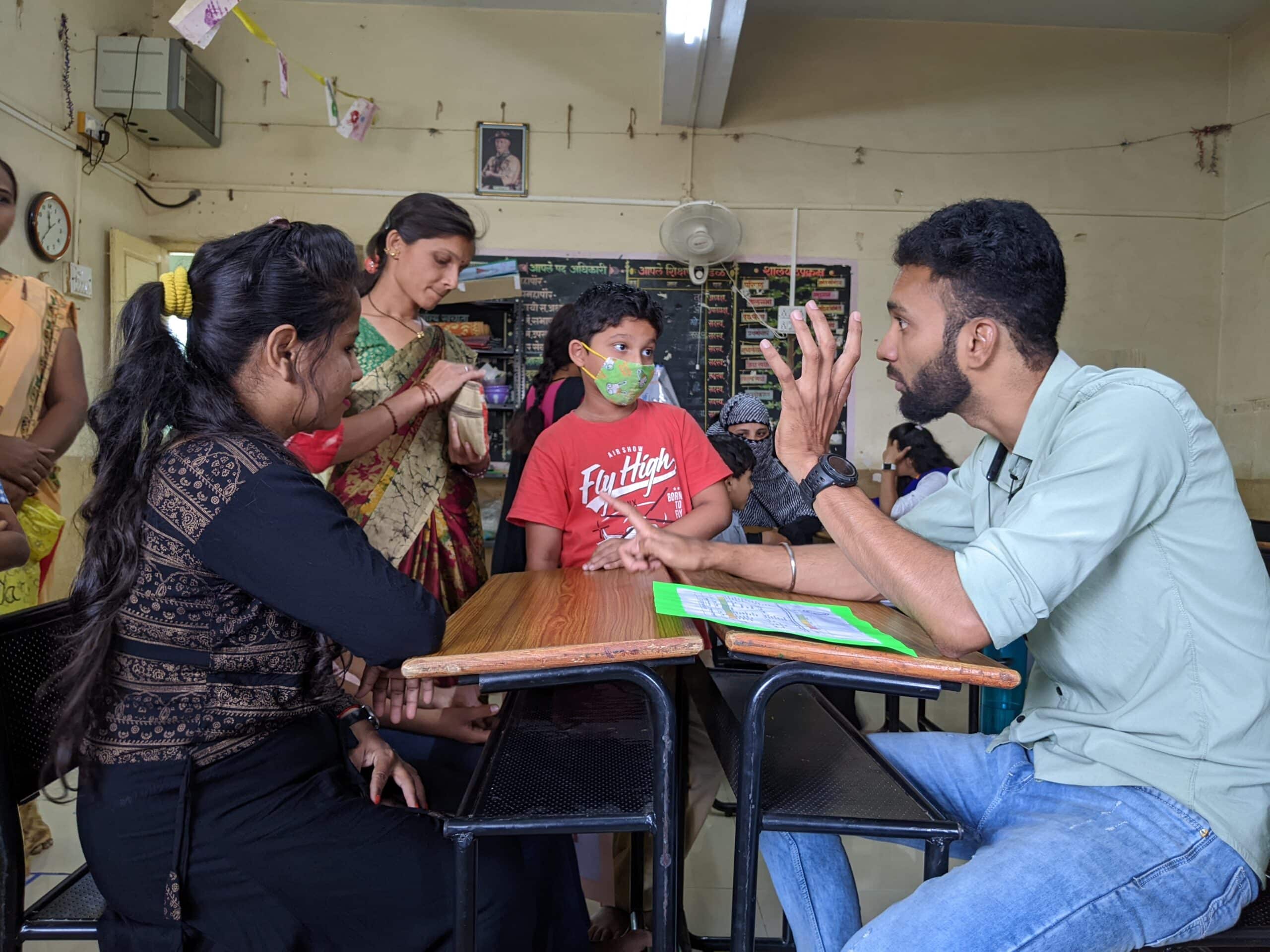
Want to be the first to hear about our prizes and how to apply? Join the T4 Community and you’ll get all the info you need alongside a wealth of resources and professional development opportunities.
T4 Education
Empowering teachers and schools
Join our community
Join 200,000+ educators and leaders getting peer-to-peer Masterclasses, thought-provoking insights and articles, our monthly newsletter, and more.
Contact the prizes team
Popular topics
Empowering teachers and schools
Copyright © 2025 T4 Education. All rights reserved. Privacy Policy.

